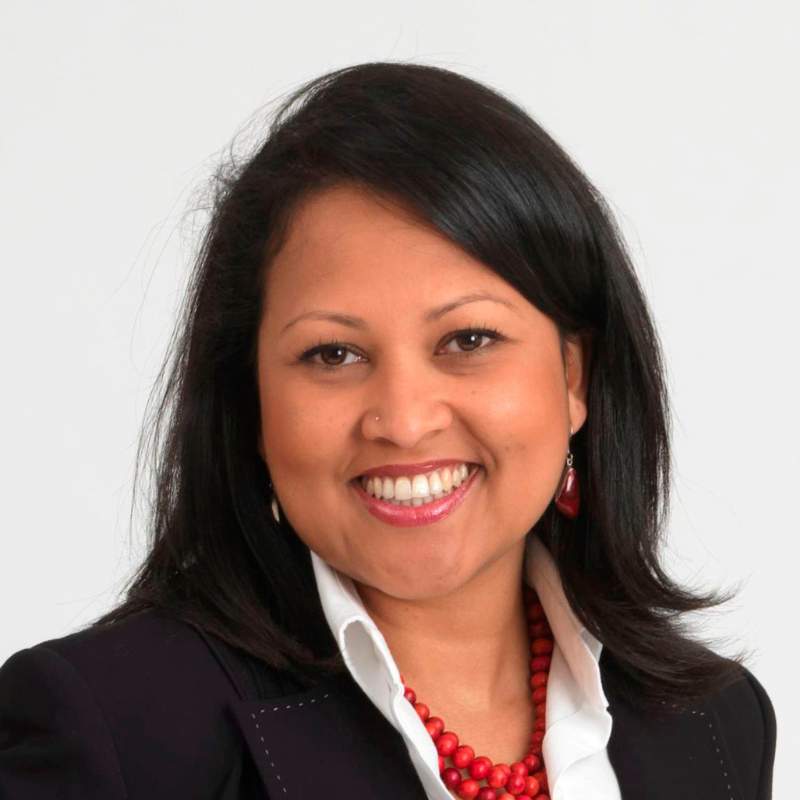
Merlin Chandra
Born in Fiji, with Indian, Indigenous Fijian, and Scottish heritage, Merlin grew up on Cabrogal land on Darug country. Her career spans over 20 years in the corporate sector across Australia and the UK.

Born in Fiji, with Indian, Indigenous Fijian, and Scottish heritage, Merlin grew up on Cabrogal land on Darug country. Her career spans over 20 years in the corporate sector across Australia and the UK.
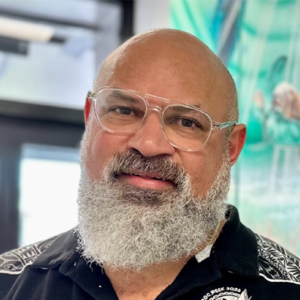
Kenny Bedford is a Traditional Owner of the Meuram Tribe of Erub (Darnley Island) Torres Strait. Kenny has served his community and region as the Torres Strait Regional Authority (TSRA) Member for Erub and held the Fisheries Portfolio on the TSRA Executive for almost a decade.
Kenny was also a Councillor and Deputy Mayor of the inaugural Torres Strait Island Regional Council. As President of the Erub Fisheries Management Association (EFMA) Kenny re-established the only community owned and managed commercial fishing operation in the Torres Strait.
Kenny Bedford is an Owner Director of his own business, Indigenous Initiatives and Innovation and is an establishing Board member of Zenadth Kes Fisheries. He is also a Director of the My Pathway Group and Board Member of Reconciliation Australia.
Kenny will graduate with a Masters of Indigenous Business Leadership from Monash University in 2024.
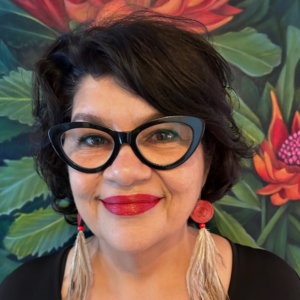
Ms Kirstie Parker is a Yuwallarai woman from NSW. Ms Parker has more than 30 years’ experience in journalism, advocacy and management of Indigenous organisations.
She was previously Strategic Adviser to the Uluru Dialogue, UNSW, the Director of Aboriginal Affairs and Reconciliation with the Attorney General’s Department (SA), CEO of the National Centre of Indigenous Excellence, and Co-Chair of the National Congress of Australia’s First Peoples.
Ms Parker has more than 30 years’ experience in journalism, advocacy and management of Indigenous organisations, including as the Editor of the Koori Mail.
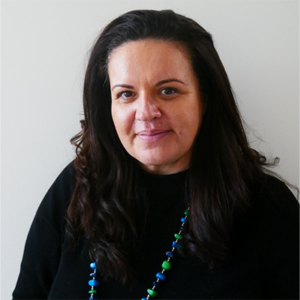
Group Manager, Social Performance, at Thiess.
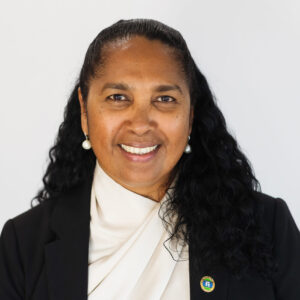
Vonda held the position of Chief Executive Officer of the Torres Strait Regional Authority (TSRA) from May 2022 to May 2024 and made history as the first female Mayor of Torres Shire Council from 2016-2022.
A Torres Strait Islander woman with connection to Erub (Darnley Island) and Cape York Peninsula.
With more than 20 years of experience working across 3 levels of government, specialising in Indigenous Affairs, she also holds a unique international perspective with both the Department of Foreign Affairs and Trade and the United Nations Office of the Human Rights Commission, Geneva.
Ms Malone has a particular interest in improving health and wellbeing outcomes for the region.
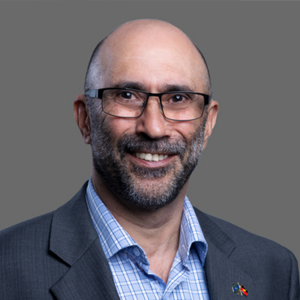
A Yorta Yorta man, Ian has extensive government and community sector experience, particularly at executive and governance levels. Ian has overseen major policy and strategic reforms for government and community organisations. He works with people from a vast array of backgrounds, managing complex and sensitive relationships to achieve mutually beneficial outcomes.
Ian chairs and is a member of a number of boards, including the Indigenous Land & Sea Corporation, Swinburne University’s Indigenous Governance Committee, the Community Broadcast Foundation, Connecting Home, The Healing Foundation, Holmesglen TAFE and the Australian Institute of Company Directors. He is also devoting himself to improving the representation of Aboriginal people on boards and other high-level governance, through strategic action, advocacy and mentoring.
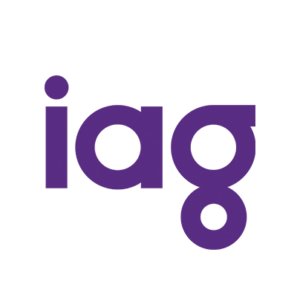
As Australia’s largest general insurer, IAG has a long and proud history of supporting reconciliation and recognises the importance of acknowledging historical truths and ensuring Aboriginal and Torres Strait Islander peoples are engaged on the issues that impact their communities.
Through its Reconciliation Action Plan (RAP), IAG and its brands which include NRMA Insurance, CGU and WFI, have a vision for reconciliation which centres around building knowledge and connection to First Nations communities, investing in the career development of Aboriginal and Torres Strait Islander employees to create future leaders, and increasing support of First Nations-led businesses through procurement.
IAG continues to advocate on issues that connect to national identity and actively works with its partners to address systemic inequality for now and future generations. These partnerships are fundamental to IAG delivering on its RAP commitments. Examples include:
IAG proudly continues to progress its work with Indigenous organisations, businesses, and communities to advance its reconciliation journey, while delivering on its purpose, ‘to make your world a safer place’.
Organisations have a role in supporting truth-telling initiatives as well as finding ways to acknowledge the wrongs of the past (exclusionary, discriminatory practices) that their organisation was a part of.
We have heard about the importance of truth-telling and healing for Country from the opening plenary. These specific case studies cover place-based and organisational examples of truth-telling activity.
Speakers
The barriers and enablers of increasing the employment of Aboriginal and Torres Strait Islander peoples and seeing representation in leadership roles are multi-dimensional. Hear from key business leaders, sharing their own journey into leadership and some of the different approaches organisations can be taking.
Speaker
Place-based reconciliation centres community voices to determine local solutions to advance reconciliation and brings together key organisations to harness the shared aspirations for the region to create and measure meaningful outcomes.
We will showcase two examples of place-based approaches within the RAP network, the Bass Coast Reconciliation Network and the WA Place Based Pilot who work together on projects and initiatives which meet community needs and aspirations.
Speakers
The pain of the Voice referendum loss is still with us however, the determination of the Uluru Youth Dialogue group to continue the fight for First Nations rights continues. Hear about their work to continue to educate, activate and connect with the calls of the Uluru Statement from the Heart.
Speakers
Hear about the ways in which organisations are upholding the principles of self-determination through their RAPs, while also influencing wider economic participation. How can RAP partners embed UNDRIP within their business operations and apply a rights-based lens to their initiatives in ways that also drive organisational strategy?
Speakers
Strong governance structures enable meaningful action towards reconciliation. Learn ways in which organisations are actively listening and responding to Aboriginal and Torres Strait Islander voices within their governance structures.
Speakers
Impact shows the difference your reconciliation commitments are making. Learn about different approaches to evaluating progress, establishing good feedback mechanisms and integrated accountability approaches. Experienced RAP organisations share their approaches to implementing clear metrics for measuring the impact of reconciliation efforts and being accountable to Aboriginal and Torres Strait Islander stakeholders.
Speakers
Between 1905 and 1970, thousands of Aboriginal children in Western Australia were forcibly removed from their families. “Genocide in the Wildflower State” offers a deeply moving and disturbing exposé of this period and its consequences. It gives voice to Survivors’ proposals on what must be done to redress the wrongs. This will be the first screening of the documentary in the eastern states.
Speakers
Effective cultural learning strengthens understanding and relationships in the workplace enabling safer and more effective organisations. RAP partners discuss their cultural learning approaches and how they engage staff and stakeholders to advance knowledges and relationships at – and beyond – work.
Speakers
Prioritising outcomes for young Aboriginal and Torres Strait Islander people – today, tomorrow and into the future requires holistic, appropriate approaches. This session highlights examples and strategies of current constructive steps forward.
Speakers
As the interest and application of First Nations cultures and knowledges grows, so does the risk of misappropriation of Indigenous Cultural and Intellectual (ICIP) property.
Find out more about the principles of ICIP and how to work respectfully and effectively with First Nations artists, knowledge holders, businesses, and community members.
Speakers
How are you and your organisation readying yourselves for the generation of Australians being raised through an education curriculum that prioritises learning about First Nations histories, cultures and perspectives, all the while committing to your own ongoing processes of learning, un-learning and re-learning?
Speakers
Delivered together with the Indigenous Governance Program, this is a masterclass on partnerships. Unpack the key principles of effective, mutually beneficial relationships and how strong partnerships underpin and enhance your RAP.
Speakers
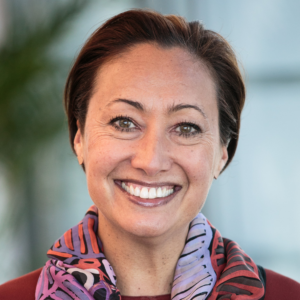
Shelley Reys AO is a Djiribul woman of far north Queensland and a leader in the corporate, Indigenous and reconciliation spaces for nearly three decades.
Her pro bono life is reflected in her ‘nation-building’ work, driven by the aspiration to leave no Australian behind. This includes Parliament’s apology to The Stolen Generations, Australia Day, The Australian of the Year Awards and, more broadly, the reconciliation movement.
Her business acumen has been driven by her passion for helping the Australian workforce to work in the First Nations space with greater skill and confidence. Her vision is “to create a culturally competent Australia, one workplace at a time.”
Currently, she is the CEO of Arrilla Indigenous Consulting, Partner of KPMG, Board member of the Organising Committee for the Olympic Games, a member of Chief Executive Women (CEW) and, on behalf of the Governor General, Chair of the Council for the Order of Australia.
She was the inaugural Co-Chair of Reconciliation Australia, Vice-Chair of the National Australia Day Council, Chair of the National Centre of Indigenous Excellence and Vice-Chair of the Fred Hollows Foundation, just to name a few.
Shelley has been inducted into the Queensland Business Leaders Hall of Fame, named by the Australian Financial Review as one of ‘Australia’s 100 Women of Influence’ and awarded the Officer of the Order of Australia (AO) in honour of her life’s work.
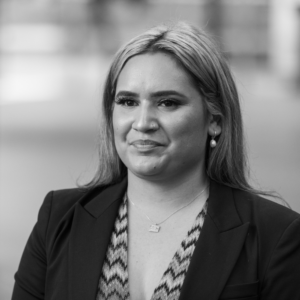
Allira Davis is a proud Cobble Cobble woman from the Barrungum and Birri Gubba nations. She was born, raised, and now based in Logan, Queensland. Allira has over 5 years’ experience working in the public and private sectors completing her Diploma in Government specialising in Project Management working specifically on policies, grants and managing programs.
Allira is currently the Youth Manager and Co-chair alongside Bridget Cama in leading and co-convening the Uluru Youth Dialogue, managing and supporting First Nations young people around the country to inform and educate all Australians on the Uluru Statement from the Heart and providing First Nations youth with the skills and knowledge to make substantive change to the lives of our people and a better future for all.
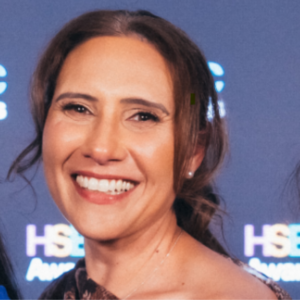
Britt is a proud Aboriginal woman who was born and raised in Alice Springs and is a descendant of the Allawa-Marra people of South Arnhem Land (Gulf Country) in the Northern Territory. After living and working in Port Hedland for 22 years, she moved to Perth to be closer to her family.
Britt’s role is Principal Governance and Strategy and has a lead role in enhancing BHP’s RAP performance, accountable for delivering stronger governance and ensuring BHP’s RAP commitments are embedded across the business.
Britt has 15 years’ experience working in BHP primarily in the Port Maintenance Operations and has been instrumental in leading major advocacy events including NAIDOC and NRW celebrations and BHP’s WA Indigenous Employee Awards and is the Australian Indigenous representative on the BHP Global Inclusion and Diversity Council.
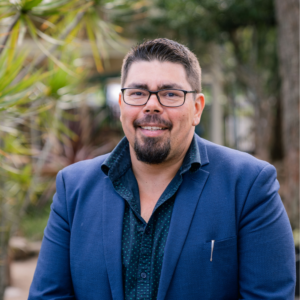
Joe Sambono is a proud Jingili man with Aboriginal family connections throughout NT, QLD, and WA. He is a curriculum specialist with extensive experience in the embedding of Australian First Nations histories and cultures in the primary, secondary, senior secondary and tertiary education sectors.
Leveraging off his lifelong passion and experience with wildlife and conservation Joe enrolled in a BSc (Zoology) at James Cook University and spent his early career working as a zoologist. After receiving a BEd from the University of Queensland, Joe was able to merge his biology interests and cultural background with a new career in education.
Joe started his education career 18 years ago as a senior secondary science teacher and was immediately involved in supporting his region with various cross-cultural education initiatives. Joe’s multi-faceted skill set, and experiences grounded in his First Nations Australian identity, science and education careers and lived experiences as a First Australian student continues to fuel his desire to work in the complex space of First Nations education.
Joe is currently the Program Lead for Embedding Indigenous Australian Perspectives with the Queensland University of Technology.
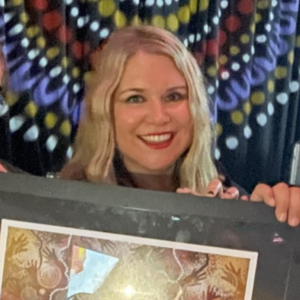
Kelly Jones is a proud Gomeroi descendant on her maternal grandfather’s side, who came from Boomi in New South Wales. Kelly is a mother to 2 beautiful children and currently lives and works as the Ethics Coordinator for the Aboriginal Health & Medical Research Council (AH&MRC) on Gadigal country, a role she has dedicated herself to for the past four years.
Kelly has shared her expertise at several prominent events, including the 2023 Lowitja Institute International Conference, the 2023 AH&MRC Ethics Forum, and the 2024 AH&MRC Policy Health Summit, among others.
She is deeply passionate about Aboriginal governance and research methods as best practice. Kelly advocates directly to academic institutions to increase cultural awareness within existing research practices for Aboriginal health and wellbeing outcomes.
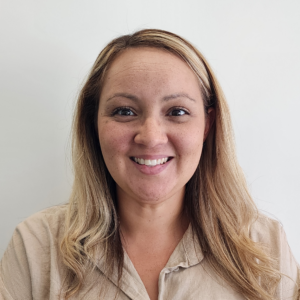
Alanah Scholes, a proud Gamilaroi woman with ties to Dunghutti and Anaiwan through her father. Alanah comes with a profound dedication to community empowerment and creating educational and professional opportunities for mob. With 14 years of experience in Indigenous engagement, employment, strategy, and HR, she is a pillar of strength in fostering Aboriginal business through effective governance.
Alanah has completed the Emerging Indigenous Executive Leadership (EIELP) program at UNSW and is currently pursuing an MBA. As the RAP Program and Social Impact Manager at National Rugby League, Alanah leads the implementation of the NRL’s 2nd Elevate RAP, aiming to meet and exceed the organisation’s RAP goals.
Alanah’s commitment is to drive generational change and empowering culturally strong young leaders.
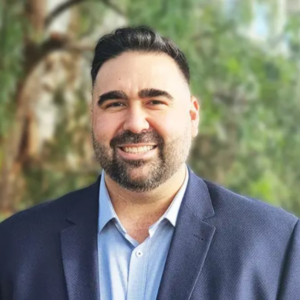
Marius is a proud Arrernte man living and working on Kaurna Country. MTL Consulting Services deliver culturally sensitive services throughout South Australia and across Australia.
Marius enjoys helping businesses with their strategic and business planning, empowering them to grow and be sustainable. Even more, he’s passionate in his support for First Nations entrepreneurs, helping to establish new businesses, improving rates of Aboriginal economic participation, and fostering inclusion.
With nearly 15 years’ experience working in the South Australian Government, Marius has developed a deep understanding of the inner mechanisms and complex networks that often drive the public sector. At the same time, he appreciates the vital need for healthy working relationships and robust discourse between private enterprise and Government agencies.
He has utilised this understanding in leading successful engagement programs with First Nations communities, recommending improvements to metropolitan and regional service delivery and supporting commercial engagement through a culturally informed lens.
An Aboriginal engagement specialist, Marius has worked with diverse audiences to support authentic representation and a strong stakeholder voice in the projects he’s managed.
Examples of this can be found in his recent work with regional First Nations organisations such as Umoona Tjutagku Health Service and Yadu Health Aboriginal Corporation, where community input helped shape the development a First Nations community-led decision making model.
A proud advocate for continuous development and capacity building, Marius is challenging himself academically by studying a Masters of Business Administration at the University of Adelaide.
Always focused on impact and change, Marius co-authored a recent academic article, ‘Examining the Effectiveness of Culturally Safe Mental Health Interventions on the Wellbeing of First Nations Youth: A Systematic Literature Review’. This important article shines a light on the need for cultural safety being authentically represented in mental health services for First Nations youth.
By facilitating respectful relationships between First Nations peoples and the broader community, Marius works towards a future where First Nations Australians enjoy parity of opportunity and are respectfully included in national economic discussions.
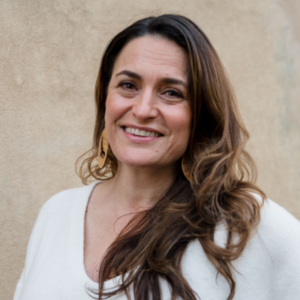
Belinda Duarte is Wotjobaluk and Dja Dja Wurrung descendant with Polish and Celtic heritage. As an accomplished leader in elite sport, social equity and First Nations communities, Belinda is CEO of Culture is Life, an organisation which is dedicated to Aboriginal-led solutions for the prevention of First peoples youth suicide.
She has been appointed to the Victoria 2026 Commonwealth Games Organising Committee, is a director of the Western Bulldogs, MCG trustee, board member of the AnnaMilla First Nations Foundation and Djaara Aboriginal Corporation.
Belinda has a vision of equality across all aspects of living for Aboriginal people. As a former elite athlete, Belinda is working on innovative projects to influence the health and wellbeing of Aboriginal and Torres Strait Islander people and to improve relationships between Indigenous and non-Indigenous people. In 2020 she was recognised for her work and awarded a CEW Vincent Fairfax fellowship. Additional awards include Football Woman of the year 2012 & Emerging leader under the Fellowship for Indigenous Leadership in 2006-2007.
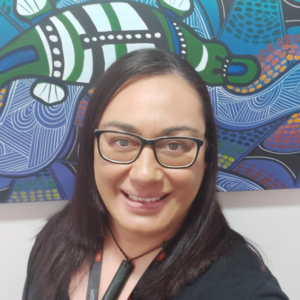
Misty Amopiu is a proud Māori woman from Aotearoa.
For the past two years, she has served as the Ethics Officer for the Aboriginal Health & Medical Research Council (AH&MRC), where she is part of the secretariat for the AH&MRC Ethics Committee.
In 2023, Misty presented at the Lowitja Institute International Conference in Cairns. Additionally, she has assisted in organising and presenting at the first annual AH&MRC Ethics Forum in 2023, continuing her involvement in the 2024 forum.
Misty’s passion for Indigenous people and cultures is the driving force behind her work. Her role within the ethics team has fostered not only her professional growth but her personal development too.
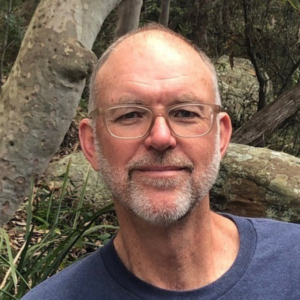
Michael is an independent director who serves on the boards of a number of organisations involved in urban infrastructure, urban policy and place making. He is the Chair the Committee for Sydney, an urban policy think tank that advocates for the Greater Sydney region. He is also Chair of Greater Sydney Parklands, Sydney’s metropolitan parks agency, and Chair of Northwest Rapid Transit, the private partner in Sydney’s Metro system.
Michael also sits on the boards of Silicon Quantum Computing Pty Ltd and the Westmead Institute for Medical Research. He has served on the Boards of a number of other Government, arts and not-for-profit organisations, including 8 years as Global Chairman of ChildFund Alliance, an international development NGO with programs in more than 65 countries.
Michael has a senior advisory role at UNSW and is a Fellow of the Australian Institute of Company Directors.
Over the last 20 years Michael has been actively engaged in policy issues involving Indigenous communities and Indigenous rights, employment, education and reconciliation. In 2016 he served as a member of the Referendum Council on Constitutional Recognition.
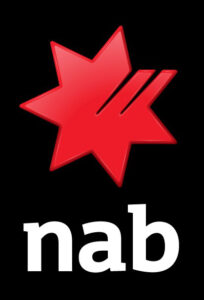
NAB’s vision for a reconciled Australia is a future where Aboriginal and Torres Strait Islander people have equitable access to finance and employment; where all Australians and organisations work together to build healthy, inclusive and sustainable communities.
NAB’s 2024-2027 RAP is anchored to what is most relevant to our business and where we can make the biggest impact. It’s pillars of focus are:
We have clear ambitions to support First Nations customers, particularly growing businesses.
The ambition to more than double lending to First Nations businesses and community organisations to at least $1 billion over the next three years has provided a rallying point for our business.
NAB has been a proud member the RAP network since its first RAP in 2008, and we are proud to be a Catalyst sponsor for Reconciliation Australia’s National RAP Conference 2024.
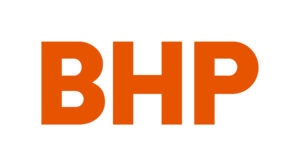
BHP committed to our first Reconciliation Action Plan (RAP) in 2007, the eighth organisation in Australia to publish a RAP. Since then, we have published five RAPs and have evolved our approach in line with the changing reconciliation movement.
Each of these RAPs have revealed valuable insights and learnings, and have accelerated our commitment, ambition and efforts to drive the substantive outcomes that support reconciliation.
Operating on or near Indigenous traditional lands carries great responsibility. We have learned that by respecting Indigenous peoples, listening to their voices and perspectives, and working jointly to develop consistent processes with Indigenous partners, we can achieve greater mutual benefit.
While BHP has a long history of partnering with Indigenous peoples, we know we haven’t always got this right. We are determined to do better to achieve mutually beneficial outcomes that extend long past the life of our operations.
Through the commitments outlined in our current RAP we seek to partner with Aboriginal and Torres Strait Islander peoples, organisations and communities to achieve mutually beneficial outcomes through respecting rights and forming trusted partnerships.
We are building a partnership model based on trust, accountability, respect and voice.
This will elevate Aboriginal and Torres Strait Islander voices in our activities and decision-making where it impacts on Aboriginal and Torres Strait Islander peoples and communities, to create lasting intergenerational social, environmental and economic value.
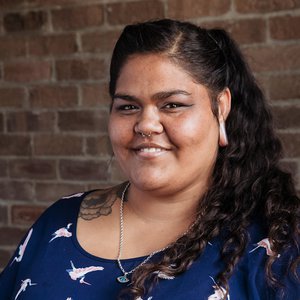
Emily is a proud Barkindji, Latji Latji, Wakka Wakka and Birri Gubba woman who grew up in Broken Hill (Far Western NSW) but has been studying, living, and working on Gadigal Country (Sydney) since she was a teenager. Emily joined Reconciliation Australia in 2023 as a member of the RAP Team, however, has since been working in a new role as Senior Policy Officer with the Policy & Research Team.
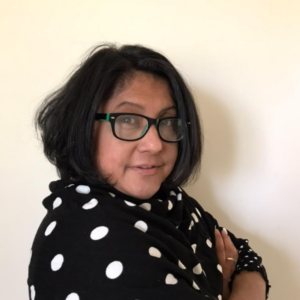
Darlene Dreise identifies as Torres Strait Islander woman with matrilineal connections to Hammond Island. She is a mother of 4 children who are the inspiration for work in leading reconciliation. As Group Manager-Reconciliation for St. Vincent’s Health Australia, she leads the Reconciliation Working Group (comprised of RAP Deliverable Leads and First Nations Leaders) and oversights strategic and formational initiatives nationally. She works across teams to ensure that Aboriginal and Torres Strait islander peoples’ perspectives on health and wellness are embedded in organisational strategy.
She has been a senior Mission Leader for SVHA for 16 years, and prior to this, taught at both primary and tertiary levels.
Darlene is keen to prioritise the place of truth-telling and justice in works of reconciliation, and is skilled at drawing in mob and non-Indigenous allies alike to embrace vulnerabilities as opportunities for growth and healing. She also subscribes to the idea of “reconciliation by stealth” to enable the embedding of reconciliation actions and priorities with integrity. Darlene believes full human flourishing and the animation of impactful, sustainable actions enabling equitable and excellent futures of hope are part of her legacy of leadership.
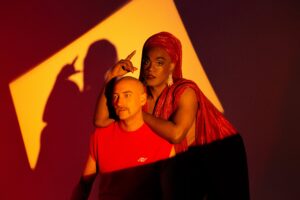
Since 2015, Vocalist Zaachariaha Fielding and keyboard player and producer Michael Ross have built a huge performance and cultural presence as Electric Fields right around Australia and the world.
Electric Fields recently created history at Eurovision, representing Australia with One Milkali (One Blood) featuring lyrics in Zaachariaha’s Yankunytjatjara language — the first song in the competition to include Aboriginal language.
They were also joint winners – along with Rrawun Maymuru – of the Indigenous Language Award at this year’s National Indigenous Music Awards.
Electric Fields are known for their lively and visually vibrant live performances and they will bring this cultural excellence to all of us on Wednesday 6 November.
Wajarri Yamaji Aboriginal Corporation (WYAC) was established in May 2013 for the Wajarri Yamaji people who have traditional rights in the Murchison and Gascoyne regions of Western Australia. WYAC works for Wajarri Yamaji people by investing in programs, facilitating community and pursuing opportunity.
WYAC’s nine-member Board is comprised of representatives from each of the land committees of the four Wajarri groups – Minangu, Burringurrah/Milly Milly, Byro and Ngoonooru
Its governance structure and management system represent this diversity to allow for localised input into decision making.
Its company structure includes the Winja Wajarri Barna Ltd (WWBL), which manages the two charitable trusts, and Wajarri Enterprises Ltd (WEL), a sustainable business enterprise for the benefit of all Wajarri Yamaji people.
Separation of powers between Board and CEO is strongly emphasised and directors’ skills are regularly enhanced by governance, strategy, and financial training workshops.
Representation of women reflects Yamaji culture and ensures cultural protocols of both genders are considered.
WYAC purchased the Drummond Park Holiday Park, establishing a four-person Wajarri maintenance team to maintain the park.
The Indigenous Land Use Agreement (ILUA) with CSIRO includes an international radio telescope project on Wajarri land, establishing Heritage Protection Committees, Cultural Heritage Management Plans, and compulsory Yamaji Cultural training for all staff working and visiting the project.
See from the Wajarri Yamaji site visit.
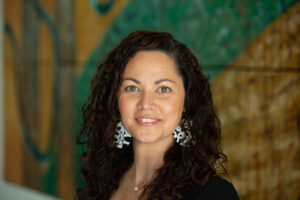
We are thrilled to welcome Carla McGrath as host of the IGA Gala!
Carla McGrath is a proud Torres Strait Islander woman and a passionate speaker, advocate and MC. Born and raised on the Australian mainland, she now lives in Minjerribah (North Stradbroke Island). Carla is an expert in community engagement and consultation, transformational organisational cultural change, organisational strategy and sustainability, program design and development, and facilitation.
Carla is Board Chair at GetUp and Native Foodways, Board Director at Blakdance, a member of the National Centre for Epidemiology and Population Health Aboriginal and Torres Strait Islander Research reference group: Thiitu Tharrmay (Australian National University) and member of the Aboriginal and Torres Strait IslanderAdvisory Group for Queensland Performing Arts Centre (QPAC).
Carla has a track record of cultivating and maintaining effective networks, alliances and relationships with a broad range of stakeholders including corporate, philanthropic and for purpose partners, Aboriginal and Torres Strait Islander individuals, communities and organisations.
Carla brings over a decade of experience in the establishment, leadership and governance of for-purpose organisations and businesses, using this experience to assist organisations, institutions and communities to seed, grow, change and sustain themselves.
Carla’s previous roles include Program Director for the Atlantic Fellows for Social Equity, Head of Sustainability at the National Centre of Indigenous Excellence (NCIE) and Relationship Manager at AIME (Australian Indigenous Mentoring Experience).
Her previous board and governance roles include Co-Chair of the Management Committee of the NSW Reconciliation Council, Vice Chair of AYAC (Australian Youth Affairs Coalition), Board Director of Shared Path Aboriginal and Torres Strait Islander Corporation, Flashpoint Labs and the George Hicks Foundation, Delegate to the National Congress of Australia’s First Peoples, Member of the AIME Corporation, Member of The Smith Family Aboriginal and Torres Strait Islander Advisory Panel, and Public Member of the Australian Press Council.
Granites Mine Affected Area Aboriginal Corporation was established in 1991 in partnership with the Central Land Council to manage and distribute payments provided to nine Tanami communities for the operation of the Granites Gold Mine on their Country.
At least 50% of the funds received are invested for future use; the balance for current community benefit projects for the nine GMAAAC communities – Yuendumu, Lajamanu, Nyirrpi, Willowra, Yuelamu, Balgo, Billiluna, Ringer Soak, and Tanami Downs – communities spread across over a 200,000 sq km area.
Each community elects a committee to prioritise, plan and fund projects; the committees elect 18 directors who oversee the corporation’s investments. This structure enables communities to address their concerns and work towards community aspirations through the allocation of their own resources.
These projects cover areas as diverse as education, community transport and infrastructure, cemetery research, cultural dance camps, sacred sites mapping, media, music, murals, and mechanics services.
The GMAAAC directors regularly attend the Good Governance Program (GGP) which aims to increase Directors’ understanding of governance and financial literacy.
In 2022 the Corporation piloted a Youth Governance Project in Yuelamu. It identified a group of young emerging leaders to learn about GMAAAC and to plan a community benefit project.
See from the GMAAAC site visit.
The Djarindjin community in Western Australia’s Dampier Peninsula was established as a defiant act of self-determination by Bardi and Jawi people escaping the control of missions in the 1980s.
For years Djarindjin Aboriginal Corporation has become largely self-funding with revenue from its airport, a necessity as it has received little infrastructure, funding, housing, and support from Government. It is the only First Nations-owned and operated independent commercial airport in Australia and is run by an all-local team from across the Dampier Peninsula.
With revenue streams established, Djarindjin Aboriginal Corporation now focuses on providing critical services to its people including a safehouse, aged care program, men’s shed, community resource centre, municipal services, community store, programs for early childhood and parenting, and youth and community service outreach.
Djarindjin’s directors are all First Nations and residents of the community or connected
outstations. The board is accountable to the members through general meetings and through direct consultations and feedback. It regularly reviews its strategic plan, policies, and procedures.
The board is well-balanced by age and gender, with a specific role for Elder directors to guide governance practices in a culturally relevant and consistent way. Djarindjin’s
vision for the future is to be financially sustainable, with future generations empowered by self-determination.
See from the Djarindjin site visit.
A view into First Nations led justice solutions, as well as how like-minded organisations can work together to support initiatives that protect Aboriginal and Torres Strait Islander children and young people.
Speakers
• Romlie Mokak, former Commissioner, Productivity Commission.
• Karina Hawtrey, Solicitor, National Justice Project
• Belinda Duarte, CEO, Culture is Life
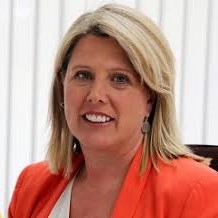
Sam (Samantha) Page is the CEO of Early Childhood Australia. ECA was established in 1938 and works with governments, early childhood professionals, families and various partners to advocate for the rights and wellbeing of young children. ECA is a not-for-profit membership based organisation. We deliver a number of government funded initiatives including Be You Early Leaning, the NT Inclusion Support Agency and NDIS Early Childhood Community Partner in Darwin. We are also a leading provider of professional learning to the early childhood sector with over 50,000 active users on our ECA Learning Hub and several highly regarded subscription based publications, including the Australian Journal of Early Childhood.
Sam holds a Master’s Degree in Management (Community Organisations) from the University of Technology, Sydney. She is also a Graduate of the Company Directors course offered by the Australian Institute of Company Directors and the Cranlana Ethical Leadership program. Her passion is for social equality and she has worked in the non-government sector for over 30 years across roles encompassing service delivery, executive management, consulting, social policy analysis and advocacy. She has extensive experience in the development and implementation of programs and sector development.
Currently, Sam’s focus is very much on the Australian Government’s plans for universal early childhood education and care which has the potential to impact substantially on the way that young children access preschool programs across Australia. There are both opportunities and risks in this reform agenda and it is important to maximise engagement by families, services and policy experts to inform the process. Every young child should have the opportunity to thrive and learn, and it is up to us to ensure this.
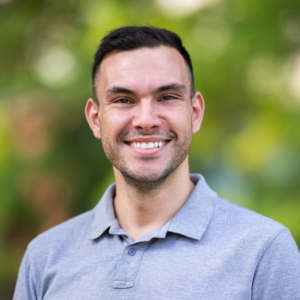 Toby Millar
Toby Millar
Toby is a proud Larrakia/Wadjigan man from the Northern Territory, on his mother’s side, and connected to his community and culture. Growing up in a defence family, he lived on Larrakia, Kaurna, and Ngunnawal country. Toby’s father is not Aboriginal, from Naarm.
Toby moved to Boorloo in 2011 to study Aboriginal Theatre at WAAPA, then completed a Bachelor of Education. He worked as an Aboriginal Liaison Officer and tutor, mentoring young Aboriginal boys.
After graduating, he worked as a teacher for 6 years. Teaching in both primary and secondary school, while teaching, he also co-ordinated Aboriginal perspectives. In 2020, Toby joined Boorloo Justice, a grassroots community advocacy group, who organized one of the nation’s largest BLM rallies. This group advocated First Nations issues which included LGBTQIA+ Mob and issues.
In 2022, Toby left teaching to work in the Not-for-profit sector as a Cultural and Diversity Coordinator. In October 2023 Toby joined Reconciliation WA as the Cultural Engagement Manager.
In his spare time, Toby plays elite level netball in the WA Men’s Netball League and for the WA Men’s State team. He loves his two dogs, partner Ollie and enjoying good food while watching anime or nature documentaries on the couch.
He uses social media to advocate for First Nations and LGBTQIA+ communities and disadvantaged people around the world.
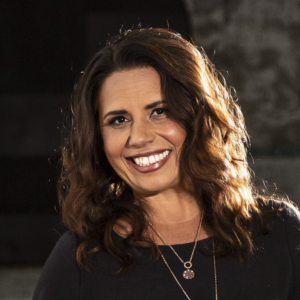
Tanya Denning-Orman, a proud Birri and Guugu Yimidhirr woman from Central and North Queensland, has led National Indigenous Television since it joined SBS in 2012, and became SBS’s first Director of Indigenous Content in 2020.
Tanya manages NITV as a channel dedicated to Indigenous voices, overseeing its diverse and innovative multiplatform content. She also plays an instrumental role in the development and delivery of First Nations storytelling across the SBS network. With more than 20 years’ experience working in media, Tanya has previously held positions as a journalist and producer for ABC and SBS, and a number of different roles at NITV since its inception in 2007.
As a champion for strong Indigenous media, she has also held a number of industry Board positions including with Media Diversity Australia, First Nations Media Australia, and currently with the World Indigenous Television Broadcast Network.
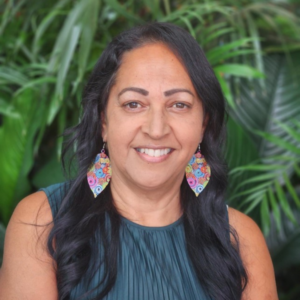
Melody Ingra is a dedicated early childhood professional with a passion for fostering the development and well-being of young children. Hailing proudly from the Gooreng Gooreng and Wakka Wakka nations, Melody brings a unique cultural perspective to her work, emphasizing the importance of cultural identity and inclusion in early education.
With her background and lived experience, Melody understands the significance of culturally responsive practices in early childhood settings. As Goodstart Early Learning’s National Cultural Liaison, she advocates for Aboriginal ways of knowing and doing to be integrated into educational programs, ensuring that children in Goodstart Centres grow up with a connection, understanding and sense of belonging to land on where they live and play.
Melody’s career is driven by her commitment to supporting children’s growth, learning, and social-emotional development during their formative years. She believes in creating nurturing environments that demonstrate First Nations perspectives, celebrate diversity and empower children to thrive.
Melody has been the Chairperson of the Aboriginal and Torres Strait Islander Community Health Service – Brisbane for 3 years and is currently a Non-Executive Director of the Gladstone Ports Corporation Limited.
Outside of her professional endeavours, Melody remains actively engaged in her community, advocating for rights of First Nations people. Her lived experience informs her holistic approach to all her work both professionally and personally.
Melythina Tiakana Warrana (MTWAC) was established in 2008 by a group of Elders in northeast Tasmania that were determined to reclaim their people’s rightful place as the original People of Tasmania. Melythina Tiakana Warana means Heart of Country in the local Aboriginal language.
Recognising that strengthening culture and developing economic opportunities for their people were central to this aspiration, the Elders were determined to establish and maintain an Aboriginal cultural artifacts and knowledges keeping place, to re-establish ceremony business, and to build cultural tourism.
Membership of Melythina Tiakana Warana is limited to Tasmanian Aboriginal people, who can show a direct link to northeast Tasmania.
MTWAC is governed by a board of nine directors who operate with a Circle of Elders providing oversight, cultural advice and ensuring cultural integrity.
MTWAC’s work is informed by a strategic plan, based on the principle of “acknowledging that our Country is sacred, our Culture is precious, and we are unique people”.
Since its establishment MTWAC has developed a two-year Aboriginal Trainee Ranger which began in 2023 with 16 trainees, hosted the annual Mannalargenna Day celebration of northeast Lutruwita Aboriginal culture, and successfully negotiated a lease with Hydro Tasmania over land on which the Mannalargenna Day is held.
See from the Melythina Tiakana Warrana site visit.
Mibbinbah was established in 2007 to enable Aboriginal and Torres Strait Islander men, women and children to explore and enrich identity, wellbeing, and skills through a coordinated national program of workshops and gatherings.
Mibbinbah works to support First Nations people to heal, grow, and resume their roles as the nurturers, teachers, and leaders in their communities.
A small organisation with only three staff, Mibbinbah operates on a project-by-project basis with minimal recurrent funding; however, the organisation has recently acquired some ongoing funds from the philanthropic sector.
Mibbinbah operates in many states across Australia, in remote, regional, and urban communities.
The programs are guided by its ‘Proper Way’ methodology which centres culture as the core of its business. ‘Proper Way’ applies First Nations cultural ways, including protocols, values, and processes, to guide how they engage with a group before, during and after workshops.
Mibbinbah incorporates traditional decision-making practices, such as consensus-building, or incorporating cultural advisors into their governance. This innovative approach ensures decisive participation from First Nations peoples and communities in the design, implementation, and evaluation of their work.
The organisation introduced a whole of community focus on the recommendation of Elders, to work with families.
Loddon Mallee Aboriginal Reference Group (LMARG) was established in 1997 to embody self-determination in action for the Aboriginal people of the Loddon Mallee region in northwest Victoria.
Local Aboriginal leaders saw a need for a united voice to advocate to government on behalf of Aboriginal people and communities of the region, to improve health and life outcomes.
Members are sourced from four key Aboriginal Community Controlled Organisations (ACCOs) which service the region. LMARG is led by a board of Aboriginal directors elected by local Aboriginal communities, with quarterly LMARG meetings attended by members’ CEOs and leadership teams. Meetings are run on the principles of consensus and collective decision-making.
Working groups comprising ACCO staff with specialist expertise in health practice, quality control, and health promotion contribute to the group’s work.
LMARG’s activities include Bush Kinder, cultural camps, healing centres, and men and women’s programs to support community members, particularly Stolen Generation survivors, and young people currently in out-of-home care.
For over 26 years LMARG’s advocacy in regional health has resulted in changed legislation to permit Aboriginal Health Workers to apply fluoride paste to improve dental health, and local Aboriginal Community Controlled Health Organisations employing specialist maternal and child health nurses ensuring culturally safe child and maternal health services.
Voice of Hope Aboriginal Corporation was established in 2022 to assist Aboriginal women in Western Australia to adjust back into community life after time spent in prison.
Noongar culture is central to the Walbreninj Yorga (Healing Women) Prison Program, designed to help women physically, mentally, emotionally, and spiritually heal and return to family. The women receive Hope Bags, containing clothes, toiletries, a mobile phone, and contact list of essential services on release.
Programs include connecting with culture, identity, and family origin; addressing personal and systemic challenges to reduce recidivism including domestic violence, and addictions; access to counselling services, parenting support and family reunification; and access to education and housing. Their support begins within the prison systems and includes external workshops for those who have served their sentence.
Voice of Hope is a volunteer organisation governed by a board of six people (four First Nations and two non-Indigenous) who receive regular ORIC governance training. Directors are all women skilled in aspects of lived experiences, program delivery, homelessness, culture, policy development and finance.
All activities are overseen by an Elders advisory subcommittee of five Aboriginal women Elders who are involved at every step. Any feedback that arises is addressed and resolved by the Elders subcommittee.
The organisation continually assesses and reviews its program to ensure impact.
See more from the Voice of Hope site visit.
Learning on Country (LoC) program was established in 2013 as a joint initiative between Aboriginal ranger groups and schools across 17 Top End (NT) remote communities.
LoC was created to ensure sustainability for this collaboration which provides educational experiences and employment pathways for students through a combination of culture and school curricula.
This ‘both ways’ learning supports students to achieve training and educational qualifications and employment outcomes, while supporting intergenerational transfer of knowledge and culture.
LoC’s governance structure ensures Aboriginal ownership and control through local community committees and a steering committee.
Each participating community has its own Learning on Country Committee comprised of Traditional Owners, cultural advisors, school representatives, and Indigenous ranger groups.
The all-Indigenous Steering Committee includes a representative from each community committee and provides overarching cultural and strategic guidance.
The success of the program is measured through school attendance numbers, school and VET graduates, and those who have gained post-program employment. These figures are reported every six months.
In 2023 there were more than 2800 Aboriginal middle and secondary students in LoC programs across 17 remote communities.
Northern Land Council is responsible for overseeing the financial and operational delivery of the program and ensuring compliance with the reporting requirements of funders.
Wintjiri Wiru Working Group was established in 2020 to provide cultural authority and oversight of cultural experiences presented at the Voyages Resort near Uluru. It also manages the reception and distribution of revenue attained from the inclusion of Anangu Cultural and Intellectual Property in Voyages activities.
Funds are allocated and distributed equally for both the Kaltukatjara and Mutitjulu communities according to three categories: Cultural Strength and Capacity; Wellbeing and Social Impact, and Community Support.
The working group is comprised of five representatives each from the Mutitjulu and Kaltukatjara communities in a unique structure that aligns culturally to part of the Mala Story songline shared through the Wintjiri Wiru drone and laser show.
The working group meets at least four times a year with an interpreter at all meetings to enable people to communicate in their language of preference. Community members may raise priorities and project ideas through the working group for consideration.
A system of proxies allows young people to attend and participate in working group processes and business.
Wintjiri Wiru Working Group funds on-Country camps and enhanced opportunities for continued cultural practice at sites of significance, a regional music recording studio for the development of Anangu musical expression, school holiday on-Country programs, and Sorry Business protocols, including funeral costs.
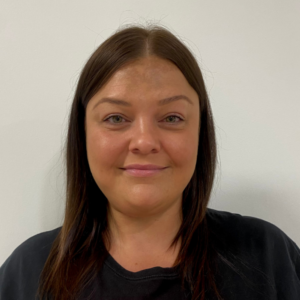 Nikki Burns
Nikki BurnsNikki Burns is a Yorta Yorta, Wemba Wemba, Dharug woman living and working on Yuggera and Turrbal lands as the RAP Partner for UnitingCare Queensland’s four private non-for-profit Hospitals, Corporate Services and the Uniting Church in Australia Queensland Synod.
Within her five years at UnitingCare, Nikki has been instrumental in the organisation’s reconciliation journey with her contributions to the development, facilitation and implementation of Stretch RAP 2021-2024 and the recently launched Stretch RAP 2024-2027.
Nikki holds collaboration and connection with community as a priority in working for and with Aboriginal and Torres Strait Islander peoples, and embeds cultural protocol and values in all practice and contexts she engages in. Nikki is the co-chair of the Uniting First Peoples Network, is an accredited Aboriginal and Torres Strait Islander Mental Health First Aid Instructor, and a proud Aunty of two nephews and two nieces.
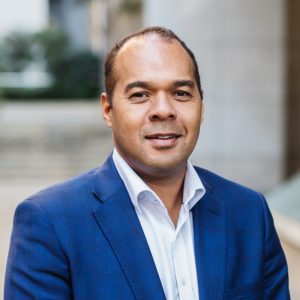
Joshua is Waanyi and Kalkadoon with connections to Northwest Queensland and Chair of the Truth-telling and Healing Inquiry in Queensland. He is a barrister specialising in native title, human rights and class actions.
Mr Creamer is a former Commissioner in the Queensland Law Reform Commission; Chair of the Bar Association of Queensland, Indigenous Affairs Committee, Chair of the Griffith University Elders and First Peoples Knowledge Holders Advisory Board and member of the Griffith University Council.
He has appeared in a number of landmark class actions and is ranked in Chambers and Partners Asia-Pacific and Doyle’s Guide for his work in the native title jurisdiction.
Joshua was previously named National Indigenous Legal Professional of the Year, and was a member of the Board of Legal Aid Queensland and a past President of the Indigenous Lawyers Association of Queensland.
Mr Creamer has a Bachelor of Law/Bachelor of Arts and a Graduate Diploma of Legal Practice from Griffith University.
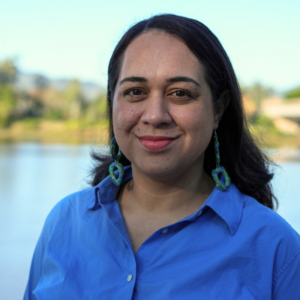
Hayley McQuire is a Darumbal and South Sea Islander woman born and raised in Rockhampton, Central Queensland. Her work is centered on community, relationality and convening new collectives to rethink education.
She is the co-founder and CEO of The National Indigenous Youth Education Coalition, Co-Chair of Learning Creates Australia and board director for a number of non-profit organisations.
She brings over 10 years of experience working across Indigenous policy and training, and has worked on advocacy campaigns and capacity building initiatives with education coalitions and young people around the world.
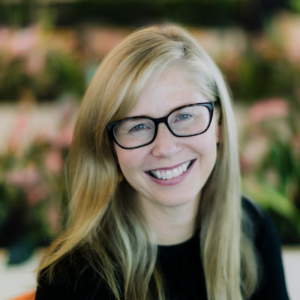
Victoria is the Director of the BHP Foundation’s relationships and investments in Australia. She is responsible for forging partnerships that focus on contributing to greater equity and self-determination for Indigenous Peoples and preparing underrepresented children and young people to participate in the economy of the future.
Victoria joined the BHP Foundation in 2021 as an experienced social impact strategist and accredited partnership broker. Her career spans business consulting, international development, corporate sustainability, philanthropy, and social enterprise, which has helped build her perspectives on how complex problems can be addressed through diverse thinking, effective multi-stakeholder collaboration and governance. She has worked as both an internal and independent broker in Australia and internationally to enable cross-sector partnerships and platforms for social and environmental impact.
Victoria holds a Graduate Certificate in Social Impact from Melbourne Business School and is a Graduate of the Australian Institute of Company Directors.
She is an Accredited Partnership Broker, Authorised Practitioner Trainer and Mentor with the Partnership Brokers Association.
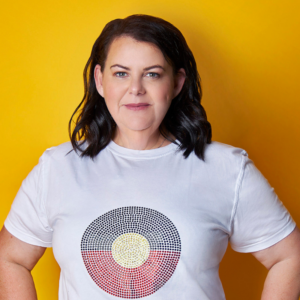
Rachelle Towart OAM is recognised nationally in Aboriginal and Torres Strait Islander leadership, governance, and education and has elevated the importance of Indigenous leadership and governance capacity to the national stage.
As a former CEO of the Australian Indigenous Leadership Centre, Rachelle trained thousands of Aboriginal and Torres Strait Islander leaders and was recognised with a wide range of awards. This included the prestigious Westpac Community CEO of the Year (2014) and one of Australian Financial Review’s Australian Women of Influence.
In 2016, Rachelle formed Pipeline Talent Pty Ltd to build support for emerging Indigenous leaders matching highly qualified Indigenous candidates with employers, providing support every step of the way.
Rachelle is passionate about supporting Aboriginal and Torres Strait Islander people to reach their leadership potential and committed to changing Australian’s employment landscape and drive positive cultural impacts across Australia’s workforce.
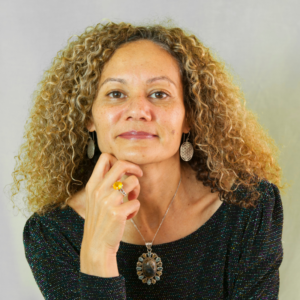
Barbara Sheehy AAICD MAHRI [she/her] is a proud Birri Gubba woman based in Meanjin and Director Indigenous Affairs at Sodexo Australia.
Her executive career spans national and international public and private enterprises, government, and community not-for-profit and non-profit sectors. Transforming workplace culture and reconciliation DNA within diverse and highly complex organisations, through strengthened governance, transparency and systemic sustainable change in policy, community engagement and business practices aligned to rights of Indigenous peoples (UNDRIP).
Barb has extensive experience developing and empowering generational leadership, strong in culture, identity, knowledge, and spiritual wellbeing. She continues to elevate and champion advocation for, Aboriginal and Torres Strait Islander voices and representation within leadership capabilities and boardrooms across Corporate and Government Australia.
Barb is a member of National Diversity Equity and Inclusion (DEI) Advisory Panel to Australian Human Resources Institute (AHRI) and 2024 recipient Indigenous Leadership Scholarship with Institute Executive Coaching and Leadership (IECL).
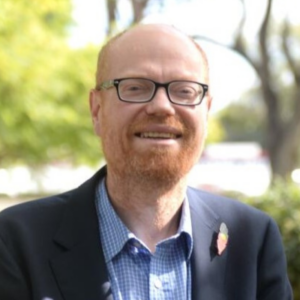 Andrew Gunstone
Andrew Gunstone
Professor Andrew Gunstone is a leading international authority in reconciliation. He is Associate Deputy Vice-Chancellor Reconciliation and Professor Indigenous Studies at Federation University, where he leads all reconciliation matters, including the National Centre for Reconciliation, Truth, and Justice, which he established in 2023, and is the leading national academic think-tank on reconciliation.
His current research on reconciliation explores substantive and performative approaches, community attitudes, multicultural engagements, national and regional truth-telling, effectiveness of RAPs, and international movements. His latest book, “Reflections on the Voice – during and after the campaign”, explores the lessons from the Referendum for our national reconciliation journey. It is available here with all proceeds going to a First Nations PhD Scholarship on Truth-Telling.
He is also Co-Chair of Reconciliation Victoria, Foundation Editor of the Journal of Australian Indigenous Issues, an Advisory Board member with the Canadian National Centre for Truth and Reconciliation, and a member of several national and regional reconciliation committees. He regularly provides advice on reconciliation and RAPs to corporates, industry, community, governments, and academia.
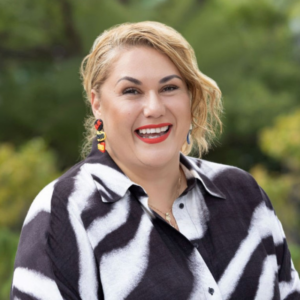
Outgoing CEO of Koori Mail and recently appointed NSW Treaty Commissioner.
Ms Naomi Moran is a Nyangbal and Arakwal woman from the Bundjalung nation in northern NSW and has direct bloodlines to the Dunghutti nation on the mid-north coast of NSW.
Prior to her appointment as Commissioner, she was CEO of Australia’s only independent, printed national Indigenous newspaper, the Koori Mail.
Naomi has had an extensive career in Indigenous Media and maintains a strong grassroots connection to communities across NSW. She serves as Co-Chair of First Nations Media Australia – the peak body for Aboriginal and Torres Strait Islander media – and serves as a member of the Federal Government’s First Nations Digital Inclusion Advisory Group.
In 2024, Ms Moran was appointed to the national NAIDOC committee, and has served on the boards of two peak creative arts and performing arts organisations in Northern NSW, NORPA and Arts Northern Rivers.
Naomi is a prominent voice in indigenous media and maintains a deep commitment to sharing the stories and knowledge of Aboriginal and Torres Strait Islander peoples from across the nation.
Naomi has worked tirelessly to support and strengthen Indigenous community-controlled sectors through the self-determination of Australia’s First Nations people to govern their own affairs and lead and deliver programs, projects and community initiatives by community, for community.
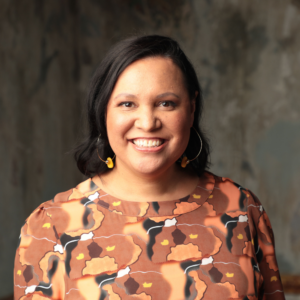
A proud Mudburra and Wagadagum First Nations woman, Natalie Ahmat is passionate about telling Australian stories through an Indigenous lens. She is Head of Indigenous News and Current Affairs at NITV, and also presents NITV News, Australia’s only dedicated national Indigenous TV news bulletin, and Nula, NITV’s weekly news in review program.
Natalie regularly fronts NITV’s live coverage of several significant Indigenous events, including the Garma Festival from north east Arnhem Land, and January 26. She has won several awards for her work, including a Chancellor’s Lifetime Achievement Award from the University of Canberra in 2022, Journalist of the Year at the 2015 Multicultural and Indigenous Media Awards, and the 2012 Deadly for Community Broadcaster of the Year. She was also a finalist in the 2023 New South Wales Aboriginal Woman of the Year award, in recognition of her wider contributions in the community.
Natalie began her media career with ABC Radio in Darwin in 1999. Since then, she has worked for Channel 8 (now Channel 9) in Darwin, Imparja Television in Alice Springs, ATSIC Radio and ABC’s TV’s Message Stick program, before joining NITV News in 2008.
Her on-air profile has given Natalie the opportunity to give back to community through a range of voluntary roles. She is the Co-Chair of the Indigenous Literacy Foundation, a member of Cricket Australia’s National Aboriginal and Torres Strait Islander Cricket Advisory Committee (NATSICAC) and a past member of the Walkleys Judging Board. She is also a proud Ambassador for Neighbour Day and the Indigenous Literacy Foundation.
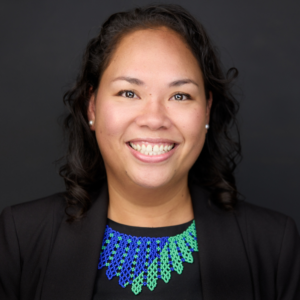
Danielle Ah Boo is a proud Torres Strait Islander woman, born and raised on Thursday Island. Ms Ah Boo is Screen Queensland’s first Head of Aboriginal and Torres Strait Islander Unit, a new leadership role created to uplift First Nations voices across the state’s screen industry.
Ms Ah Boo has previously worked in production for First Nations-founded agency Carbon Creative and more recently as a financial accountant with Arrow Energy. She also serves as Co-Chair of Reconciliation Queensland.
Her role at Screen Queensland is to elevate awareness of the cultural significance of First Nations storytelling and amplifying First Nations voices in the screen industry, as truth-telling holds immense significance in shaping our nations’s history.
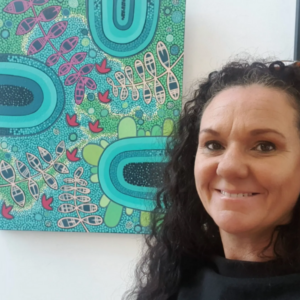 Patrice Mahoney
Patrice MahoneyPatrice Rene ‘Muthaymiles’ Mahoney was born in Canberra on 4 November 1975. She is a proud mother of five children and two granddaughters. Her connections to family and place reflect her multicultural connections from the Anaiwan Nation (Uralla, NSW), Malta, France, Ireland and England. She grew up in Armidale (NSW) and then moved to the Bass Coast region (Bunurong Country), where she has lived for 25 years.
Patrice is a powerful advocate for Aboriginal people and their cultures, and a talented, prolific artist who believes art and education are the basis of identity, self-determination and leadership. She holds a Graduate Diploma (Teaching), Bachelor of Arts (Media Art and Design), Advanced Diploma (Business Management). She is profoundly influenced by a sense of space, place, the environment, visual art and culture. She takes great inspiration from the natural environment where she lives.
Patrice was awarded a Medal of the Order of Australia (OAM) in 2020 for service to the Indigenous community of Victoria. Patrice’s passions are driven by her desire for change and to achieve equality and equity, recognising that we do not all start from the same place and adjust to the imbalances. Above all, true respect and inclusion for Aboriginal people ensures that the same education and employment opportunities are available. Patrice is a powerful and generous changemaker.
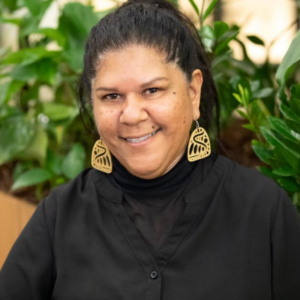
Luana Sanders nee Coolwell is a proud descendant of the Gooreng Gooreng peoples, the Munanjhalli peoples and the Ghungalu peoples. She is a sister, aunt, mother, and grandmother who is deeply connected to her family and community.
Over the past ten years, Luana has developed and managed several Reconciliation Action Plans with various private sector companies. Currently, Luana works in First Nations engagement within the renewable energy sector, where she builds relationships with traditional owners nationwide and fosters cultural respect. In addition to her professional role, Luana sits on the board of Sisters Inside, a grassroots organization advocating for the rights of incarcerated women. Residing in Meejian, Luana cherishes time spent with her family and friends.
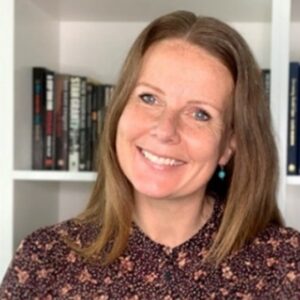
Loes Westerbeek is Ventia’s Social Sustainability Manager. Loes is the driving force behind the Stretch Reconciliation Action Plan and the review and implementation of Ventia’s Indigenous Governance structure. Loes also focuses on many other diversity and inclusion and local community engagement initiatives across Ventia’s business.
Loes is passionate about ESG and Sustainability, in particularly Social Sustainability and a strong advocate of ensuring that communities and societies can thrive and continue to exist in a healthy, fair, and equal way. With more two decades experience in both social sustainability management, and active participation on several boards, Loes understands the role that businesses play in improving people’s quality of life, fostering strong relationships, and ensuring everyone has the chance to fulfill their potential. Through her work Loes supports the creation of a diverse and equitable society and identify and manage business impacts, both positive and negative, on people.
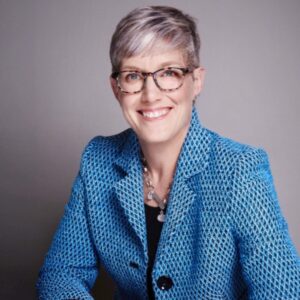 Melinda Cilento
Melinda Cilento
Melinda Cilento is a company director, economist and experienced senior executive. She has been on the Reconciliation Australia Board since 2010, having been Co-Chair since 2011.
Currently, Ms Cilento is the CEO of the Committee for Economic Development of Australia (CEDA) and a Non-Executive Director of Australian Unity. She is also a member of the Parliamentary Budget Office panel of expert advisors.
Ms Cilento was previously a Non-Executive Director with Woodside Petroleum; Commissioner with the Productivity Commission and Deputy CEO and Chief Economist with the Business Council of Australia. Melinda was responsible for establishing the Business Council’s Indigenous Engagement Taskforce and Business Indigenous Network. She has also held senior roles with the Federal Department of Treasury, Invesco and the International Monetary Fund.
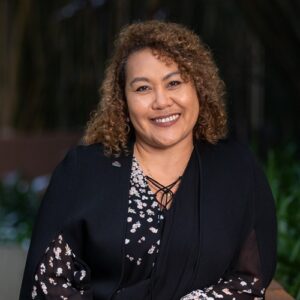 Karen Mundine
Karen Mundine
Karen Mundine is from the Bundjalung Nation of northern NSW. As the CEO at Reconciliation Australia, Ms Mundine brings to the role more than 25 years’ experience leading community engagement, public advocacy, communications and social marketing campaigns. An architect of the landmark Australian Reconciliation Barometer, Ms Mundine works with governments, the business sector and civil society to advocate for change.
Over the course of her career, she has been instrumental in some of Australia’s watershed national events including the Apology to the Stolen Generations, Centenary of Federation commemorations, Corroboree 2000 and the 1997 and 2021 Australian Reconciliation Conventions.
Ms Mundine holds a Bachelor of Arts in Communication from the University of Technology Sydney (UTS) and was the winner of the 2021 Indigenous Australian UTS Alumni Award. In 2023 she was declared the National Winner of the Australian Awards for Excellence in Women’s Leadership.
She is a Company Director of Gondwana Choirs, Sydney Festival, and Australians for Constitutional Recognition, and is a Member of Chief Executive Women.
Previous roles include: membership of the Australian Government’s Referendum Engagement Group; Director, Mary Mackillop Foundation; Director, Australian Indigenous Leadership Centre; Deputy Chief Executive and General Manager Communication and Engagement, Reconciliation Australia; Senior Consultant, CPR Communications; and senior public affairs and communications roles with federal government departments including Prime Minister and Cabinet, Communications IT & the Arts, Health and Ageing, and Foreign Affairs and Trade.
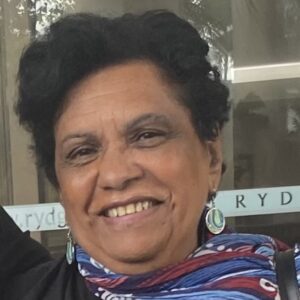 Marie Pryor
Marie Pryor
My name is Marie Pryor, I am a Whadjuk Ballardong Elder with ancestral ties to Gnaala Karla Booja.
I am a wife, mother, grandmother and great grandmother and I am a fourth descendent of the stolen generation.
I have worked in the community for forty years in both the health and justice systems. I currently work in the women prisons, supporting and advocating for the Aboriginal women who are incarcerated for when they transition into society. I am also involved with presenting cultural programs.
I worked through Covid with the homeless mob in the city and am now a Director with Voice of Hope Aboriginal Corporation. I was acknowledged for this work and awarded the 2022 NAIDOC Get Up Stand Up Show Up award.
I am a valued member of the Anglican advisory committee, member of the Langford Aboriginal Association, member of the Cultural advisory committee for Ballardong, member of the Homeless Committee with Wungerning and a member of Nannas for kids at Banksia Hill.
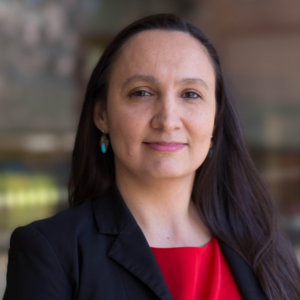
Amber is a First Nations Australian woman who leads the Reconciliation and Human Rights capability across Yamagigu Consulting. Throughout her career, Amber has worked directly in the areas of human rights law and advocacy, corporate social responsibility and governance, native title law, Indigenous justice and sentencing courts, Indigenous health equality, reconciliation and workplace diversity.
Amber provides advisory guidance and thought leadership to government and some of the largest companies in Australia and globally around embedding reconciliation, diversity and human rights standards and principles within operations, strategies, policy and practice. She is able to identify and assess capability of an organisation’s commitment to, respect for and protection of human rights, covering key business areas such as governance, employment, diversity & inclusion, due diligence, ethics and compliance, grievance mechanisms and supply chain.
Amber also previously worked at the Australian Human Rights Commission as a policy advisor to the Aboriginal and Torres Strait Islander Social Justice Commissioner. In this role, she presented at the United Nations Permanent Forum on Indigenous Issues in New York. She actively applies a rights-based approach to her work and seeks to give effect to the UN Declaration on the Rights of Indigenous Peoples, through practical, respectful engagement, strategy and evidence-based policy.
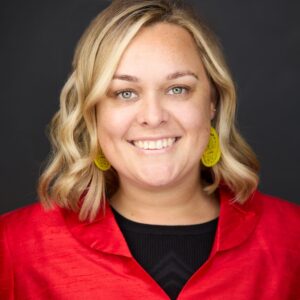 Erin Lang
Erin Lang
A proud Bundjalung woman, Erin Lang has worked in Aboriginal communities for over ten years, building respect, gaining trust and demonstrating fairness and sincerity along the way.
Erin brings energy and enthusiasm to Reconciliation Queensland, where she plans to continue building and maintaining strong relationships at all levels of the community to achieve the organisation’s vision of an equitable and informed Queensland, which recognises a shared past and respects Aboriginal and Torres Strait Islander peoples as the first Australians.
She has worked in a diverse range of community-based organisations including Quandamooka Yoolooburrabee Aboriginal Corporation, Anglicare North Queensland, Queensland South Native Title Services, and Cape York/Gulf Remote Area Aboriginal and Torres Strait Islander Child Care.
Given her aptitude for innovation and collaboration, coupled with formal qualifications in Leadership and Management and extensive professional experience, Erin Lang is an asset to not only First Nation communities but the Queensland community as a whole.
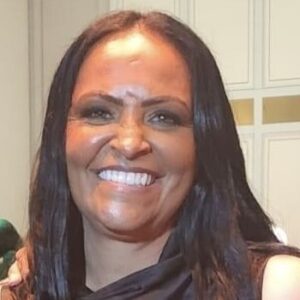 Lorraine Pryor
Lorraine Pryor
Lorraine Pryor is a Whadjuk Noongar Woman with connections to Ballardong and Gnaala Karla Boodja. As a mother and grandmother, she now gives back to community through sharing her lived experiences. Lorraine is a survivor of domestic violence and substance abuse that led her to spending 7 years in and out of incarcerated. It is this experience that has changed Lorraine’s life forever as she promised herself that she will never go down this path again and she has made some life changing decisions.
Lorraine currently has worked as a plant controller with BHP for almost ten years and has continued to build her knowledge and education through
– graduating from the Women’s Indigenous Leadership Program Yorga Djenna Bidi
– graduating in a Certificate 4 in Mental Health and receiving the Excellence Award
– graduating in a Diploma of Mental Health and receiving the Yvonne Burgu Award.
Whilst working full-time Lorraine uses her experience by helping our women and in 2022 established ‘Voice of Hope’, a non-for-profit organisation committed and dedicated to our Indigenous women inside by delivering workshops to heal them through connection to culture, identity, language, relationships with family and community to name a few. Voice of Hope advocates with and for our women giving them individual support to transition back into the community with the right wrap around services needed to prevent recidivism. The mentors of Voice of Hope are women who have been inside and are now role models and
leaders supporting women in the program.
In 2022 Lorraine was acknowledged and recognised for her service to her community and was awarded the BHP WAIO Indigenous Employee of the Year Award and also in 2023 won NAIDOC award Community Person of the Year Award for her drive and passion with her advocacy in the prison system. Lorraine wears many hats and plays many roles in serving her community such as
Lorraine continues her work as a motivational speaker about surviving the impacts of stolen generation and intergenerational trauma to educate Australian people, such as Government and essential services but most importantly that healing our women is the solution not locking them up.
Understand First Nations perspectives on the expectation and workload placed on Aboriginal and Torres Strait Islander employees to provide knowledge, education and support to their colleagues, and how it impacts on wellbeing. Hear about strategies to relieve the load and increase respect.
Speakers
• Luke Booth, Senior Program Development Coordinator, First Nations, Brisbane South PHN
• Professor Nareen Young, Associate Dean (Indigenous Leadership & Engagement), UTS Business School
• Patty Kinnersly, CEO, Our Watch
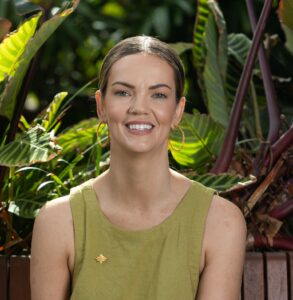 Paige Cunningham
Paige Cunningham
Paige is a proud Wonnarua woman from the Hunter Valley in NSW, a passionate social justice advocate who endeavours to champion change for community. Her experience spans a decade working in grass roots Indigenous advocacy as a Social Worker, with time spent working with community in both NSW and across the NT.
Prior to Social Work, Paige gained over 6 years’ experience in banking across leadership, change management and transformation.
Paige joined the Westpac team in 2020 and has worked in Consumer Banking leading multiple retail teams before moving into Westpac’s Corporate Services in Procurement to work on our Supplier Diversity program. She now leads the implementation of Westpac RAP to ensure meaningful reconciliation within the organisation.
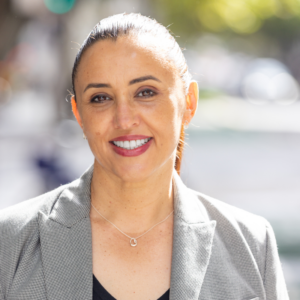 Servena McIntyre
Servena McIntyre
Servena is the Chief Transformation Officer for the Cultural Justice and Reform Unit responsible for leading Life Without Barriers Elevate RAP & Transformation Project.
A proud Wadi Wadi, Wemba Wemba, Wiradjuri woman, Servena has spent her career disrupting thinking, systems, and structures that maintain the status quo. A dynamic and cross cultural leader, Servena has held numerous roles and portfolios across the social services sector for the past three decades, contributing to new practice and governance models, services, and organisations.
She is an experienced executive holding roles with some of the largest not for profit organisations in Australia, alongside appointments within Government, Universities and Peaks. Servena considers herself as a practitioner first, with a proven track record in designing and delivering people and community led change. She is the Head of CALM Australia, member of the First Nations NGO Alliance and the Investment Dialogue for Australian Children Community Leadership Council.
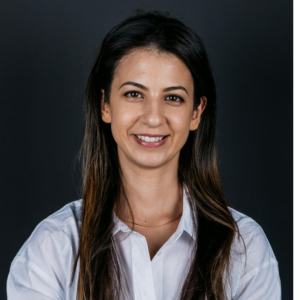
Yasmine is a Senior Specialist in Telstra’s First Nations Strategy and Engagement team, working alongside Lauren Ganley, the Head of First Nations Strategy and Engagement.
The team’s role is to provide strategic advice and advocate for better outcomes for First Nations peoples and communities, to influence the shape of Telstra’s commitment to reconciliation, and to advocate for and support community-developed solutions that contribute to improved digital inclusion for First Nations people.
Yasmine has been with Telstra for three years. Before joining Telstra, she spent eight years at PriceWaterhouseCoopers in Financial Advisory services and as a manager at (formerly) PriceWaterhouseCooper’s Indigenous Consulting in Darwin.
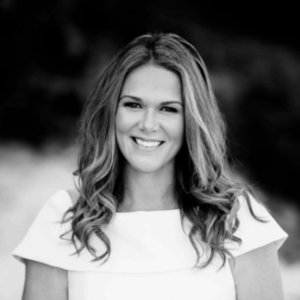
Renee is the Gold Coast Titans General Manager of Community and Game Development. Renee has been working with the Titans since the club’s inception in 2007.
She has been a leader in the push for reconciliation and inclusion, not only Rugby League, but the entire sporting community nationally. Renee organises and leads the Club’s Reconciliation Action Plan, partnerships with First Nations organisations and specific First Nations programs.
Reconciliation Australia acknowledges Traditional Owners of Country throughout Australia and recognises the continuing connection to lands, waters and communities. We pay our respect to Aboriginal and Torres Strait Islander cultures; and to Elders past and present.
Aboriginal and Torres Strait Islander peoples should be aware that this website contains images or names of people who have passed away.
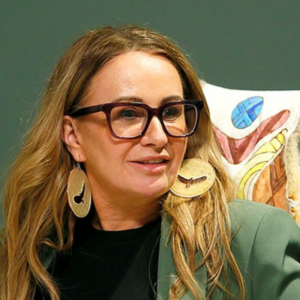
Sue-Anne Hunter is a proud Wurundjeri and Ngu rai Illum Wurrung woman and the Deputy Chair and Commissioner of Australia’s first truth telling process – the Yoorrook Justice Commission. She is an Adjunct Professor of Global Engagement at Federation University and a member of the National Centre for Reconciliation, Truth, and Justice Advisory Board.
A child and family services practitioner by trade, Sue-Anne has over twenty years’ clinical experience responding to developmental, transgenerational and community trauma.
She is widely recognised for developing rights-based, transformative practice responses that empower Aboriginal people to heal from the continuing effects and processes of colonisation.
Sue-Anne has extensive experience in the governance and the leadership of Aboriginal community-controlled organisations, and her expertise is regularly sought for government inquiries, parliamentary and ministerial advisory committees, academic research projects and media interviews.
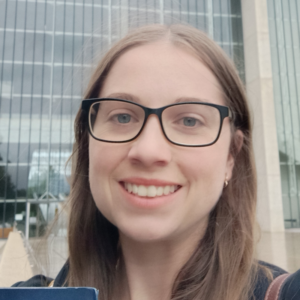
Karina is a Gamilaroi woman and a human rights lawyer at the National Justice Project.
She has represented clients who have been detained in youth detention and appeared for First Nations families in coronial inquests into deaths in custody. She has co-authored submissions about youth detention to the Disability Royal Commission and the Senate Inquiry into Australia’s youth justice and incarceration system.
Karina is an advocate for Raising the Age of criminal responsibility and has written for IndigenousX on the dangers of carceral approach for youth offending. She has previous experience in public service and as a digital journalist at NITV.
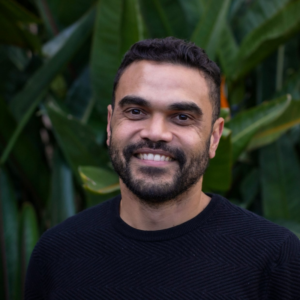 Darren Hammond
Darren Hammond
Darren is a proud Gomeroi man from Moree NSW and now resides in Sydney NSW. He is a dedicated advocate for Indigenous communities, with extensive experience in leadership, strategy, and community engagement and his career spans various roles, each contributing to positive change and empowerment for people within private and not-for-profit sectors.
Darren is currently Indigenous Engagement Manager at IAG and leads initiatives to enhance Indigenous engagement which focuses on driving inclusion for Aboriginal and Torres Strait Islander people, businesses and communities within the organisation. He is the current Chair of Deadly Science which plays a pivotal role in advancing science education for Indigenous youth across the country.
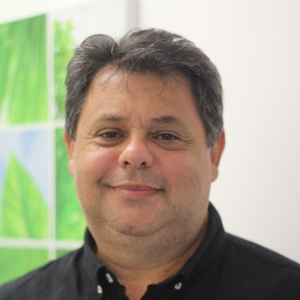
Professor Chris Matthews is from the Quandamooka people of Moreton Bay, Queensland, Australia. Chris received a PhD in applied mathematics from Griffith University and started his career as a research mathematician. Chris transitioned to mathematics education and is currently the CEO of the Aboriginal and Torres Strait Islander Mathematics Alliance (ATSIMA) that aims to transform mathematics education for Indigenous learners. Chris is also the Associate Dean (Indigenous Leadership and Engagement) in the Science Faculty at University Technology of Sydney (UTS).
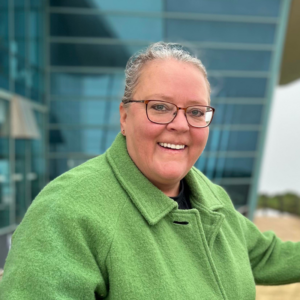
I feel very fortunate to have had a career working in the conservation and ecotourism industry with both State and Federal government National Parks agencies on Yuin, Bundjalung and Anangu Country for over 30 years. I now live on beautiful Millowl (Phillip Island), on Bunurong Country and work with Phillip Island Nature Parks as the Community Impact Manager.
In my role at the Nature Parks, I lead the implementation of our Reconciliation Action Plan and our representation as a partner of the Bass Coast Reconciliation Network. I highly value the friendships and relationships I have built with Traditional Owner groups and First Nations peoples in my life and I’m proud of the achievements we’ve made in working together to champion reconciliation and recognition in Australia.
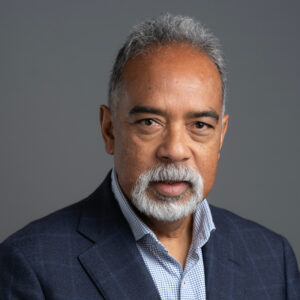
Romlie Mokak is a Djugun man and a member of the Yawuru people.
In March 2024, Romlie completed a 5 year term as the first Indigenous Commissioner at the Productivity Commission. Previously he was Chief Executive Officer of the Lowitja Institute and the Australian Indigenous Doctors Association. Earlier, Rom held policy and program management roles in the Australian and New South Wales governments. Responsibilities spanned a range of areas including substance use, eye health, ageing and disability. Rom is a patron of Winnunga Nimmityjah Aboriginal Health and Community Services and a member of the Australian Institute of Health and Welfare Board.
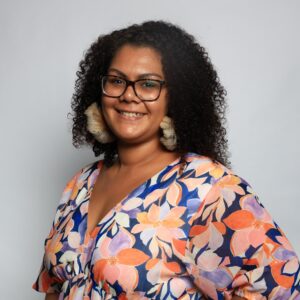
Bridget Cama is a Wiradjuri and Indigenous Fijian woman born and raised in Lithgow with connections to the Cudgegong River and Wellington in NSW. Bridget is a lawyer and has been working with the Uluru Dialogue since March 2019. She is currently Legal Research Officer to Prof Megan Davis, Pro Vice Chancellor Society UNSW and is an Associate of the Indigenous Law Centre based at UNSW Law and Justice. Bridget is also the Co-Chair of the Uluru Youth Dialogue alongside Allira Davis, who led the youth movement in support of a constitutional Voice to Parliament and who advocate for and are involved in the work of the implementation of the Uluru Statement from the Heart reforms more broadly.
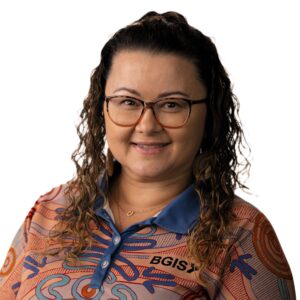
Rikki Cooper is a dynamic leader with over two decades of experience in talent acquisition and indigenous engagement, renowned for her strategic expertise and unwavering commitment to community empowerment. As the National Indigenous Engagement Manager at BGIS Australia, Rikki orchestrates the indigenous engagement landscape, spearheading initiatives that drive meaningful change and foster enduring partnerships.
In her multifaceted role, Rikki oversees the execution of BGIS’ Reconciliation Action Plan, navigating complex governance structures and formalising agreements to ensure adherence to best practices. A passionate advocate for forging genuine connections, she cultivates relationships with stakeholders, clients, and indigenous communities alike, aligning mutual objectives and fostering collaboration for shared prosperity.
At the heart of Rikki’s mission is the expansion of employment pathways and indigenous procurement expenditure across BGIS’ nationwide contracts. Through strategic planning and close collaboration with clients, she drives initiatives that not only advance business objectives but also uplift local communities, championing inclusivity and diversity every step of the way.
As a proud Nari-Nari woman, Rikki brings a unique perspective to her role, drawing upon her lived experiences to identify gaps in knowledge and support structures. Her innate ability to navigate cultural sensitivities and bridge divides has positioned her as a trusted liaison and first point of contact for all indigenous inquiries, driving initiatives that promote cultural awareness and foster meaningful relationships.
Rikki’s approach is with passion, integrity, and a relentless commitment to driving positive change.
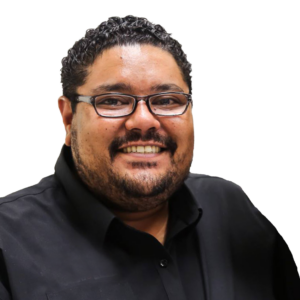
Edward is a dedicated advocate and leader within both the First Nations, people with disabilities and LGBTIQA+ communities. Identifying as Torres Strait Islander with strong connections to Badu Island, Edward is passionate about empowering Aboriginal and Torres Strait Islander peoples.
Edward’s career has been marked by his dedication to reconciliation and diversity, equity, inclusion, & belonging (DEIB). Currently serving as the Manager of Reconciliation, Diversity, Equity, Inclusion, and Belonging (RDEIB) at Wesley Mission Queensland (WMQ), he has actively contributed to initiatives that support reconciliation and social inclusion. This senior leadership position aligns with his ongoing mission to bridge the gap between Aboriginal and Torres Strait Islander communities and mainstream services. His work aligns with his personal values, especially in advocating for First Nations peoples and addressing systemic inequalities.
Edward has also been involved in key events and initiatives, such as the Moreton Bay Pride Festival 2024 and the Loud and Proud Logan LGBTIQA+ Festival 2024, where he provided strategic advice on social media engagement and festival activities, ensuring inclusive messaging for diverse audiences. His involvement in these festivals demonstrates his unwavering support for the LGBTIQA+ community, of which he is a proud member.
Beyond his professional endeavours, Edward faces significant personal health challenges, including severe heart failure with left ventricular dysfunction, atrial fibrillation, autoimmune pancreatitis, and type 2 diabetes. Despite these conditions, he remains proactive in managing his health. His personal experience with chronic illness has given him deep empathy and resilience, qualities that reflect in his professional and advocacy work.
Edward’s contributions to advancing Reconciliation, fostering workplace inclusivity, and advocating for social justice are underscored by his personal lived experiences. His efforts continue to inspire change and build stronger relationships between First Nations peoples and the wider Australian community.
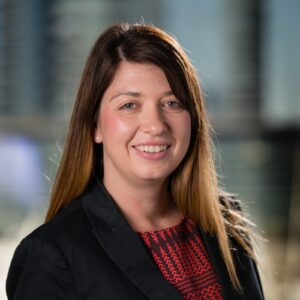
Louise is an experienced people leader and program manager, she is passionate about creating positive social and cultural change in the finance industry as well as focussing on improving cultural safety in the workplace. Louise has spent the last five years leading ANZ’s Reconciliation Action Plan as well as leading a number of other inclusion employment programs and has recently joined the newly created First Nations Strategy Office at ANZ as Strategy, Governance and Delivery Lead, where she is working alongside the new Head of First Nations Strategy, Shelley Cable to create an organisational wide strategy.
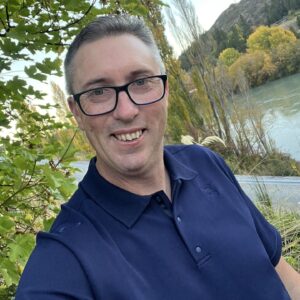
Phil is a proud Palawa man living and working from Lutruwita (Tasmania).
Currently Reconciliation Program Manager, Hearing Australia, Phil was appointed as the very first dedicated resource to Hearing Australia’s Reconciliation journey as Program Manager in early 2023 with our 5th RAP and 2nd Stretch RAP endorsed by Reconciliation Australia in July 2023.
Phil’s role supports the implementation of the RAP and related communications by developing strategic partnerships to drive reconciliation outcomes and support diversity and inclusion to deliver meaningful benefits to our employees, clients and communities.
Outside of work he enjoys spending time with his young family and partner, especially camping and hiking on country. For a number of years Phil has volunteered with the Cancer Council Tasmania as Committee Chair for the local Relay for Life event and recently completed a Leadership and Coaching Scholarship with the Tasmanian Institute of Sport following 30+ years involvement as an Aussie Rules football umpire and coach.
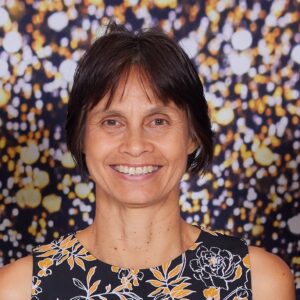
Leanne is a very proud Gangalidda, Birri Gubba Bindal woman with family ties to Burketown and Cherbourg. Leanne is Executive Director for Education and Training at TAFE Queensland north region based in beautiful Gimuy (Cairns). She began her career as a high school Health and Physical Education before joining TAFE Queensland in 1998 teaching Sport, Recreation and Fitness qualifications.
In 2012, Leanne was appointed Faculty Manager for the Arts & Aboriginal and Torres Strait Islander Programs and has specialised in overseeing the delivery of Indigenous and non-Indigenous programs across a wide range of industry areas. Leanne is the lead for TAFE Queensland’s two Reconciliation Action Plans and plays a key role in overseeing its implementation across the state. In her Executive Director role she manages all training and educational programs across the north footprint, ensuring quality education and training for TAFE Queensland’s diverse student body.

Telstra’s vision for reconciliation is an inclusive Australia where Aboriginal and Torres Strait Islander peoples are connected and empowered to thrive.
Our vision will be achieved by embedding reconciliation outcomes and system changes into our organisation.
This involves harnessing the strengths of the organisation to build digital futures with Aboriginal and Torres Strait Islander peoples, providing employment and opportunities to lift economic participation, and creating a culturally responsive and engaged organisation.
Our current Stretch Reconciliation Action Plan (RAP) is based on a theme of truth-telling, recognising our past successes, acknowledging our past failures, and continuing our healing journey.
As part of Telstra’s long-standing commitment to reconciliation, we are proud to support Reconciliation Australia’s National RAP Conference, and to celebrate First Nations’ self-determination in action at the Indigenous Governance Awards.

Emma Garlett is a Nyungar-Nyiyaparli-Yamatji woman from Geraldton. Emma is the Director of Garlett Group a 100% Indigenous owned specialist communications and sustainability firm. In addition to her role at Garlett Group, Emma is a First Nations leader. She is an Industry Fellow at the Sustainable Minerals Institute at The University of Queensland. Emma is a Teaching Fellow at the Law School at the University of Western Australia and an Adjunct Professor at Federation University where she sits on the Advisory Board for the National Centre of Reconciliation, Truth and Justice.
Prior to founding Garlett Group, Emma practised as a solicitor in planning and environment law at a top-tier law firm in Perth and worked in a commercial role at BHP. Emma is a regular First Nations legal and business social commentator and writes weekly columns in print and online for The West Australian. She is a Member of the First Nations Governance Forum at the Australian Institute of Company Directors. She is appointed to and sits on both the Law Society of Western Australia’s Commercial Law Committee and Indigenous Legal Issues Committee. Emma is also a Tribunal Member of the West Australian Football Commission.

Add bio copy here. This is 200 words approx. Lorem ipsum dolor sit amet, consectetur adipiscing elit. Integer nec odio. Praesent libero. Sed cursus ante dapibus diam. Sed nisi. Nulla quis sem at nibh elementum imperdiet. Duis sagittis ipsum. Praesent mauris. Fusce nec tellus sed augue semper eleifend. Donec viverra auctor orci, et gravida urna. Curabitur accumsan ligula sit amet lorem cursus, id consequat nisi aliquam. Proin vehicula libero sed urna egestas, ac tempus libero varius.
Vivamus venenatis suscipit felis, a feugiat mi. Nullam facilisis, quam eu cursus iaculis, libero dui vulputate justo, nec egestas eros lectus in mi. Pellentesque habitant morbi tristique senectus et netus et malesuada fames ac turpis egestas. Nulla facilisi. Cras eget metus vel ipsum posuere consequat. Suspendisse potenti. Nam vehicula urna sit amet lacus ultrices, vitae ullamcorper magna vehicula. Integer tempor turpis at ligula fermentum, ac ultricies felis fringilla. Donec a orci id magna tempor tristique eget in velit. Vestibulum ultricies, justo vel commodo dictum, ex turpis dictum risus, eu fermentum nunc mi id odio. Vivamus.

Add bio copy here. This is 200 words approx. Lorem ipsum dolor sit amet, consectetur adipiscing elit. Integer nec odio. Praesent libero. Sed cursus ante dapibus diam. Sed nisi. Nulla quis sem at nibh elementum imperdiet. Duis sagittis ipsum. Praesent mauris. Fusce nec tellus sed augue semper eleifend. Donec viverra auctor orci, et gravida urna. Curabitur accumsan ligula sit amet lorem cursus, id consequat nisi aliquam. Proin vehicula libero sed urna egestas, ac tempus libero varius.
Vivamus venenatis suscipit felis, a feugiat mi. Nullam facilisis, quam eu cursus iaculis, libero dui vulputate justo, nec egestas eros lectus in mi. Pellentesque habitant morbi tristique senectus et netus et malesuada fames ac turpis egestas. Nulla facilisi. Cras eget metus vel ipsum posuere consequat. Suspendisse potenti. Nam vehicula urna sit amet lacus ultrices, vitae ullamcorper magna vehicula. Integer tempor turpis at ligula fermentum, ac ultricies felis fringilla. Donec a orci id magna tempor tristique eget in velit. Vestibulum ultricies, justo vel commodo dictum, ex turpis dictum risus, eu fermentum nunc mi id odio. Vivamus.
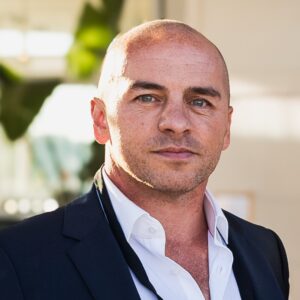
Jamie Lowe is a proud Gundjitmara Djabwurrung man and CEO of the National Native Title Council (NNTC). He first joined the NNTC as Chair in 2017 and two year later was appointed CEO. In this role he is charged with supporting First Nation’s people’s right to true self-determination speaking for and managing their own Country; governing their own communities; participating fully in decision making; and strengthening their own social and economic development.
In 2021 he was appointed as the Indigenous Specialist Representative for the Australian Heritage Council – the principal adviser to the Australian Government on heritage matters.
In 2018 he joined the Victorian Heritage Council as an Indigenous Specialist Representative and is a joint council member of the Coalition of the Peaks. Jamie was instrumental in negotiating the Closing The Gap Agreement with the all Australia Governments, that came into effect July 2020.
Prior to joining NNTC Jamie was CEO of the Eastern Maar Aboriginal Corporation in Southwestern Victoria, awarded Native Title in 2011and 2023 over the Great Ocean Road. He was also an inaugural member of the historic First Peoples’ Assembly of Victoria, the representative elected body tasked with negotiating a Treaty with the Victoria Government.
Internationally, Jamie is the NNTC representative on the United Nations Permanent Forum on Indigenous Issues (UNPFII) – a high-level advisory body to the New York based UN Economic and Social Council.
As a key influencer, Jamie firmly believes that creating economic independence and maintaining and growing cultural identity are vital in creating a self-determining nation of First Nations peoples and will continue to tirelessly advocate for a national Treaty whilst remaining a strong advocate for Traditional Owners and communities across Australia.
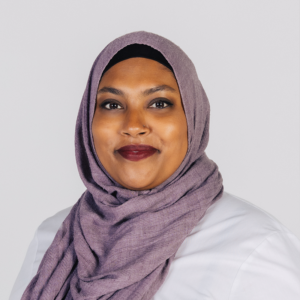
Rana Hussain is a dynamic force in the realm of inclusion and belonging, serving as a trailblazing leader, consultant, and advisor on leadership and organisational culture. As the founder of Good. Human, she champions initiatives that foster a sense of community and belonging.
With a background in social work and extensive experience in sports administration across multiple elite sports organisations, Rana brings a unique perspective to her work. Her passion for social justice and equity drives her commitment to creating inclusive environments where all individuals feel valued and respected.
Rana is a sought-after consultant and advisor, providing invaluable insights into leadership development and organisational culture. Her expertise in navigating complex issues and facilitating meaningful change has earned her recognition as a thought leader in the field.
As a board member of the Victorian Women’s Trust, Rana contributes her expertise to initiatives that promote gender equality, particularly marginalised women. Her dedication to advancing social causes extends to her work as a media commentator, broadcaster, and presenter, where she uses her platform to amplify marginalised voices and spark meaningful conversations. Rana is a regular presenter on the ABC and across various sports broadcasts.
Rana’s trailblazing efforts in sports administration and media have made her a respected figure in both industries. Her ability to break barriers and challenge the status quo has paved the way for greater diversity and inclusion in traditionally male-dominated fields.
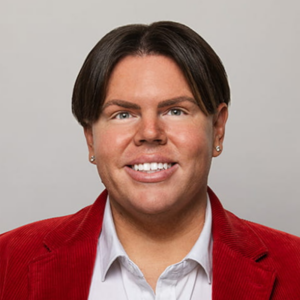
Trent is a Wongaibon person who was raised on Darkinjung Country. As Head of First Nations Strategy, Ashurst, Trent combines both legal and First Nations lived experience and seeks to embed cultural considerations and safety to create meaningful change for First Nations Peoples across the firm and externally through his First Nations Advisory practice.
In addition to this, Trent is a lawyer, law lecturer and author who is on the UTS Law Faculty Industry Advisory Board, Director of the Australian Pro Bono Centre, Member of the Expert Advisory Panel for the Gari Yala 2 report, Member of the Indigenous Leadership Group for the Business Council of Australia, Advisor to the Starlight Children’s Foundation, Advisor to the Board of ActionAid Australia and is a lecturer in law and First Nations Peoples.
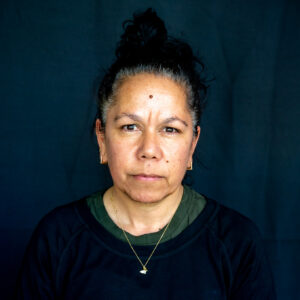
Jo-Anne was raised in Brisbane, Queensland and is a Guwa-Koa, Kuku Yalanji descendant.
Having completed a photography cadetship in 1999 at the State Library of Queensland, Jo-Anne continued working as a photographer and also across various arts and curatorial specialised roles including archival and anthropological research; exhibition programs and Aboriginal Family history support.
These skills have and continue to provide a holistic approach towards specialised projects including her current role as Artists in the Black Coordinator with Arts Law Centre of Australia which is a dedicated National service for Aboriginal and Torres Strait Islander Artists of all creative disciplines.
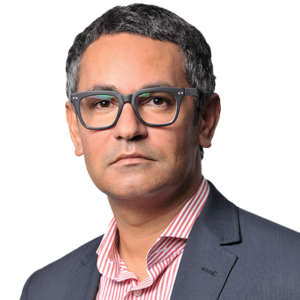
Principal, Nous Group
Rodney is a Guwa (Koa) man and has diverse industry experience across the private, public and community sectors where he has held board, senior executive and management roles.
He has 25 years’ of professional experience in management consulting, banking and finance, Indigenous economic development, higher-education, employment and training, mining and resources, and design.
Rodney has worked extensively with business and industry leaders, senior public service administrators and urban, rural and remote First Nations communities across Australia. Rodney applies strategic thinking, strong communication and well-developed commercial skills to effectively engage with all levels of management and solve challenging client problems across a broad range of industries.
Rodney is a Principal consultant with Nous Group, an international management consulting firm with 750 people working across Australia, the UK and Canada. He also leads Nous’ First Nations Practice and is Champion of Nous’ Reconciliation Action Plan (RAP) having recently launched Nous’ Stretch RAP.
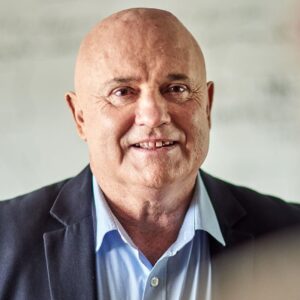
Mark has managed and developed a reverse mentoring program within TfNSW. His vision is to normalise and celebrate cultural diversity in the workplace through a two-way mentoring process.
This presents opportunities for our First Nations Peoples to develop and progress into leadership roles and non-Aboriginal leaders to gain a better understanding of Aboriginal history, culture and issues.
Ultimately, Mark is committed to unite all Australians by expanding this model throughout the public and private sectors and build a platform for us to walk together. The success of the reverse mentoring model was acknowledged in 2021, winning the prestigious Australian Human Resources Institute Award. Mark’s passion and commitment was recognised when awarded the 2022 Churchill Fellowship.
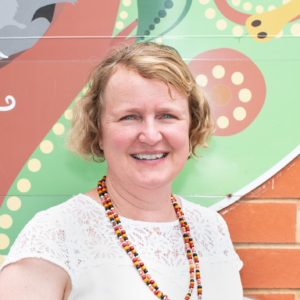
Mary Scales is the Program Leader for Professional Learning and the RAP Convenor for Gowrie SA. She has over 30 years’ experience working at Gowrie SA in numerous roles including Teacher, Project Officer, convenor of the Reconciliation Action Plan Working group and Program Leader. She is passionate about reconciliation, learning Kaurna language and developing reciprocal relationships with Elders and networks to ensure actions are authentic and meaningful for the community.
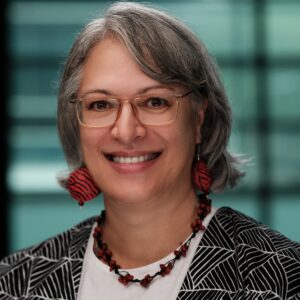
Kelly Williams is a Bundjalung woman from Northern NSW and is the Australian Broadcasting Corporation’s Head Indigenous, Diversity and Inclusion.
She has worked at the Australian Broadcasting Corporation (ABC) for over 35-years and is passionate about creating pathways to senior management and editorial roles for Indigenous and diverse employees.
Kelly has co-ordinated the ABC’s last three Reconciliation Action Plans, the ABC’s 2023-2026 Diversity, Inclusion and Belonging Plan and leads the strategic partnerships between the ABC and First Nations Media Australia and First Languages Australia.
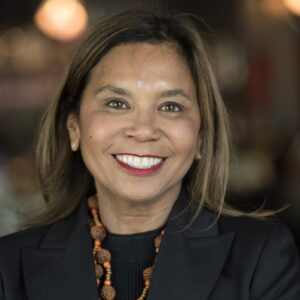
Dr. Terri Janke is a Wuthathi, Yadhaigana and Meriam woman and an international authority on Indigenous Cultural and Intellectual Property (ICIP). She is known for innovating pathways for collaborations using Indigenous knowledge and cultural expression.
Dr. Janke is the founder, owner, and Solicitor Director of Terri Janke and Company (TJC). Founded in 2001, TJC is the oldest First Nations owned law firm in the country. She manages her team to deliver excellent results to a diverse client base. Dr. Janke advises on legal matters including ICIP, intellectual property, business law, shareholder agreements and governance of Indigenous organisations.
She has written leading ICIP Protocols and models for various sectors including the arts, museums, archives, film, and business. Dr. Janke developed the True Tracks® ICIP Framework to bridge the gap in the IP laws and protection of Indigenous Knowledge. This framework is widely accepted as the leading best practice for managing Indigenous engagement in Australia. Her award-winning book True Tracks: Working with Indigenous Knowledge and Culture is considered as the best practice standards for Indigenous engagement practices.
.
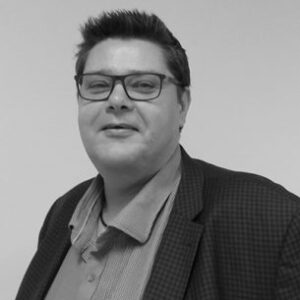
Jason is a proud Aboriginal man born and raised on Gunnai country in south-east Victoria who brings a deep passion and experience in Aboriginal affairs to his role as Director, Aboriginal Melbourne.
Aboriginal Melbourne is a branch within the City of Melbourne that is responsible for working with the Aboriginal community to ensure their needs are heard, respected and influence the delivery of a wide range of Council services and outcomes.
Before joining the City of Melbourne, Jason was the inaugural CEO of welcometocountry.com a tech startup that created an online marketplace to connect travellers to First Nations tours and experiences across the country and an online store of products either made by First Nations people or genuine collaborations.
He is a previous CEO of the Koorie Heritage Trust, and one of four Aboriginal co-owners that founded PwC’s Indigenous Consulting.
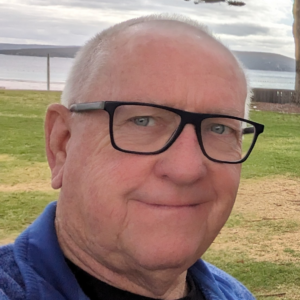
Alan Carter has been involved in a wide range of reconciliation work for over 30 years in the Political, Government, Corporate, University and Community Sectors. He has worked “in-house” on the development and implementation of RAP programs for a number of organisations including the Water Corporation and Curtin University. In addition, he has provided Consultancy Services to RAP organisations at various stages of their reconciliation journeys.
Alan has been active in advocacy work for reconciliation in Western Australia and was the key driver for the establishment of Reconciliation WA nearly fifteen years ago and was the Inaugural Non-Aboriginal Co-Chair of that organisation. He is a Life Member of Reconciliation WA. He has also been involved actively in advocacy for Stolen Generations Survivors and is currently the Non-Aboriginal Co-Chair of Bringing Them Home WA.
Alan is now in “semi-retirement” but maintains an active role in research and advocacy in relation to Truth-Telling and Reconciliation. He is an Adjunct Senior Research Fellow at the National Centre for Reconciliation, Truth and Justice and is currently working with that Centre to establish a specific research project relating to best practice principles and protocols for Truth-Telling.
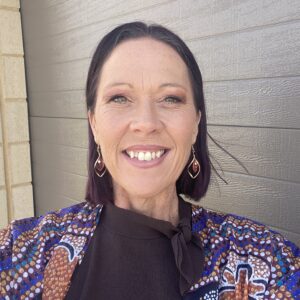
Anja is a highly regarded Ally, a First Nations engagement professional and a trusted advisor with a background advocating for First Nations people.
A skilled and confident leader, with a demonstrated capability and commitment to building cultural competency, she engages effectively with people from diverse backgrounds at all organisational levels.
She is dedicated to advocating for and supporting First Nations people who have resided within a Justice facility, which is demonstrated by her work mentoring Aboriginal men and women in Justice facilities across Western Australia.
Anja has a thorough understanding of how to successfully engage with First Nations community, personnel and businesses to promote and increase participation within Veolia’s contracts, specifically with the Department of Defence. Anja brings knowledge and cultural understanding to her position and is skilled at assisting First Nations employees and businesses to build capacity and capabilities.
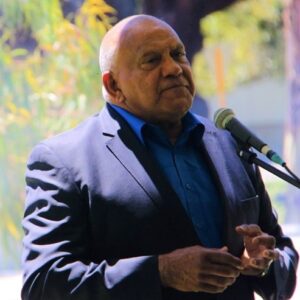
Jim is a Minang-Goreng Noongar Elder, a Traditional Custodian of WA’s pristine southern coast who has passed his strong Aboriginal values to following generations of his extended family.
He has been a leader in pivotal Aboriginal community advancement roles for over five decades, working for the rights of the Stolen Generations and their families; Aboriginal child protection; the tragic mental health, justice and suicide issues in his community; equity in access to culturally safe services in State and Commonwealth Governments; Aboriginal Elder (Aged) Care overdue prison reforms; trauma informed healing programs and the formation and management of Aboriginal controlled organisations providing services to Aboriginal families and their broader communities.
He has won the John Curtin Medal for services to the community and partnered in winning seven awards in the virtual and Elder Survivor story augmented conservation of Aboriginal Missions in WA. Jim is the current Chair of the WA Stolen Generations Aboriginal Corporation, a founding member of Reconciliation WA and the architect and initial manager of Yokai Healing Our Spirit. Jim’s favourite hobby is hosting a weekly Aboriginal current affairs program Moorditj Mag on Perth’s RTR FM92.1, which feeds to Noongar Radio.
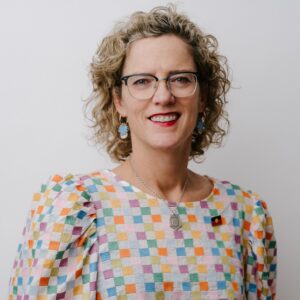
Patty Kinnersly is Chief Executive Officer of Our Watch, a not-for-profit organisation established to drive nationwide change in the structures, norms and practices that lead to violence against women and their children.
A leading health, welfare and education professional, Patty was Chief Executive Officer of Women’s Health Grampians for nine years, before joining Our Watch in 2015 as Director, Practice Leadership.
She was appointed to the Chief Executive role in June 2018.
Patty has extensive governance experience, serving on the boards of Ballarat Health Services, the Australian Women’s Health Network, Rural Northwest Health, and Child and Family Services Ballarat.
In 2023 Patty was appointed as expert advisor to Minister Clare’s University working group and the inaugural Chairman, National Respectful Relationships Education Expert Working Group.
She is a Vice President of the Carlton Football Club Board, the first Board Director to oversee its women’s football programs.
Patty lives in regional Victoria.

As a provider of essential infrastructure services, people are at the heart of our success.
Our vision is to be an organisation where Aboriginal and Torres Strait Islander people feel accepted and included and, importantly, feel culturally safe and valued.
We also want to create a workplace where non-Indigenous people have their understanding of reconciliation transformed by the experiences they have while employed with, or subcontracted by, us.
Driving that culture within our organisation in turn supports reconciliation externally, as the sphere of influence of our employees and subcontractors goes beyond Ventia.
They influence and have the potential to transform the people they interact with, the communities in which they work and live, and the future workplaces with which they will engage.
In July 2020 Ventia acquired Broadspectrum which saw two companies come together with different RAP types – Broadspectrum at Elevate and Ventia at Reflect.
A detailed integration plan embedded specific RAP actions across the new entity.
Once those actions were achieved and closed out, we began the development of our current Stretch RAP.
In this RAP, the focus is on building strong relationships, respecting Aboriginal and Torres Strait Islander people in all our activities and creating meaningful opportunities guided through consultation to preserve and protect Aboriginal and Torres Strait Islander cultures and customs.
We recognise the need for culturally proficient leadership and partnerships based on trust and respect. Aboriginal and Torres Strait Islander cultures must be deeply understood, valued, and integrated into every aspect of our business.
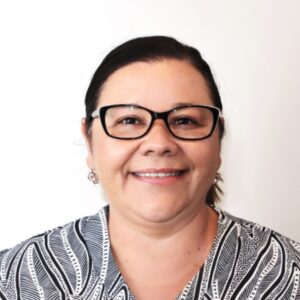
Fiona Jose is a proud Aboriginal and Torres Strait Islander women and Chief Executive of the Cape York Partnership Group – a First Nations organisation driving a comprehensive reform agenda improving the lives of Indigenous families in Cape York.
Fiona oversees 10 entities and businesses that form Cape York Partnership, including the Cape York Institute for Policy and Leadership, two schools Djarragun College and the Cape York Girl Academy, a landscape and construction company, a health clinic, financial empowerment platform and more. Employing 350 people, 65% of whom are First Nations. She is in a unique position leading policy design and advocacy informed by rich on the ground experience of reform implementation.
Fiona is one of 10 First Nations leaders driving the national Empowered Communities reform initiative that has brought Indigenous, government, and corporate leaders into partnership to shift from the failing status-quo approach to a system focused on productivity and development outcomes.
Her passion for education, employment and economic development of the region has seen her launch initiatives, such Mayi Market – to deliver fresh food to remote communities at fair prices and Work Opportunity Network – to create earn or learn pathways for high school graduates. Under her leadership, CYP’s Bama Services has grown into a full-service construction, facility maintenance, landscaping and commercial cleaning social enterprise that has secured more than $50 million of contracts and employed more than 260 Indigenous staff.
Fiona is a Director of the Cairns and Hinterland Hospital and Health Service Board, responsible for ensuring excellence in health service for the region. She is a member of the Paul Ramsay Foundation First Nations Council.
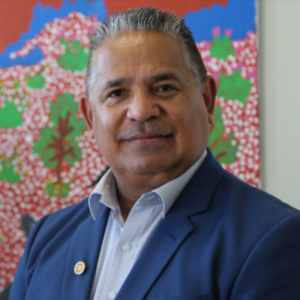
Tony Hansen is a Senior Traditional Custodian of Wilman, Koreng, Minang, Great Southern Noongar and Wagyl Kaip Booja with traditional connections to the Karri Karrak Aboriginal Corporation tribal boundaries of Wardandi, Pibelmen, Busselton, Margaret River, Manjimup, Gnaala Karla Booja tribal area of Wagin, and the Murchison region.
Tony was born in Katanning in September 1967, but in 1970, at the age of three years old Tony was forcibly removed from his mother and grandparents’ care and institutionalised without family consent at Marribank Mission. While the forced assimilation policies which had been in force up to 1970-71 no longer existed, the race-based policies of following governments kept him in government juvenile care until he was 18 years old. Tony identifies as a Stolen Generations Survivor, the descendant of Stolen Generations people and his children also as descendants of the Stolen Generations.
Tony is currently the recurrent Co-Chairperson of the Bringing Them Home Committee WA Inc (BTH), the Deputy Chairperson of the West Australian Stolen Generations Aboriginal Corporation (WASGAC), represents WA Stolen Generations Survivors as a Board Director of Yokai addressing Truth, Justice and Healing programs. Tony is currently a Member of the Healing Foundation Stolen Generation Elders Reference Group Committee on a National Platform, with The Healing Foundation, in Canberra. Tony was the former Chairperson of the Carrolup Elders Reference Group at Curtin University, representing the Carrolup Artwork of children from the Carrolup Native Settlement.
Tony is a Director of Karri Karrak Aboriginal Regional Corporation, an Associate of Curtin University as well as an associate of the Australian Rules Football organisation at the Fremantle Football Club External Advisory Group.
Tony is currently a Member of the First Nation College, National Centre for Action on Child Sexual Abuse, Tony is a Member of the Find and Connect, Stolen Generations Indigenous Reference Group at Jumbunna Institute for Indigenous Education and Research, at University of Technology Sydney.
Tony has participated in International Platform on truth-telling of the Stolen Generations across the United States, Abu Dhabi, Canada and the United Kingdom.
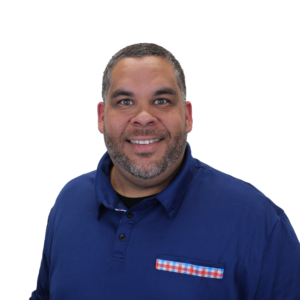
Luke is a proud Warramungu man from the Barkly Tablelands, in the Northern Territory with kinship ties to the Yuggera people of Brisbane, Queensland.
Luke has consulted, advocated and advised on Indigenous affairs across various industries and levels of community, government and corporate Australia; with experience spanning the education, employment and health sectors.
Luke has had the privilege of working within the Aboriginal and Torres Strait Islander Community Controlled Health service sector contributing to the development and implementation of training and employment initiatives and to embedding virtual health care services within their clinics.
He is currently the Senior Program Development Coordinator for the Brisbane South Primary Health Network leading their Reconciliation Action Plan and coordinating projects to improve culturally appropriate primary health care with a focus on enhancing First Nations people’s access to mainstream primary care.
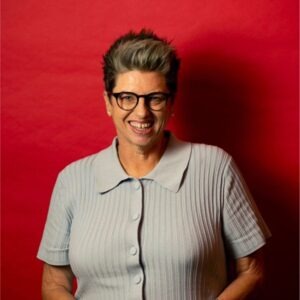
Professor Nareen Young is a descendant of the Gadigal through her matriarchal line and Associate Dean, Indigenous Engagement and Leadership, UTS Business School and Professor, Indigenous Policy, Indigenous Workforce Diversity at UTS Jumbunna Institute of Indigenous Education and Research where she established the Indigenous
People and Work Research and Practice Hub.
The Hub is the only one of its kind internationally and focuses on robust Indigenous-lead research and analysis, policy, practice, and law reform around the workplace experiences of Indigenous people.
Influenced by her Indigenous and culturally diverse heritages in all of her work, Nareen has made a major contribution to awareness and understanding of employment diversity in the Australian employment and wider community as a trade union official (and sat on the Executives of both the ACTU and Unions NSW in affirmative action positions) during that time, as CEO of
two employment diversity peak bodies (NSW Working Women’s Centre and Diversity Council Australia) and as Employment Lead at a large Indigenous consulting firm.
Nareen is one of Australia’s leading and most respected workplace diversity practitioners and thinkers, she has presented nationally and internationally, is a leader of the First Nations employment sector, is a published researcher and author has held and continues to hold numerous government appointments.
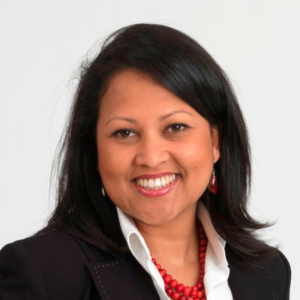
Born in Fiji, with Indian, Indigenous Fijian, and Scottish heritage, Merlin grew up on Cabrogal land on Darug country, and now calls Wangal country home, with her young family.
Her career spans over 20 years in the corporate sector across the finance and retail industries in Australia and the UK, focused on cultural change and communication. She’s currently Reconciliation Lead at Endeavour Group, which operates Australia’s largest retail drinks network under the Dan Murphy’s and BWS brands, and the largest portfolio of licensed hotels in communities across the country.
Her work is focused on community engagement, equity, inclusion and allyship to drive respect for and empowerment of First Nations peoples. She’s passionate about how reconciliation and cultural knowledge can unlock broader inclusion, belonging and connection for all Australians.
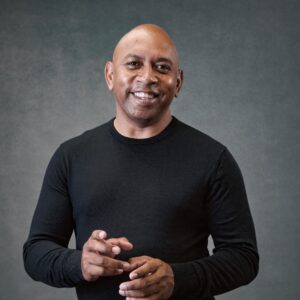
Jason is a proud Badu/Waiben Island man from the Torres Strait Islands and an accomplished professional who has provided Indigenous engagement consultancy services for some of the largest organisations in Australia, including EY, Lendlease, Stockland, TikTok, Morgan Stanley, and Foxtel.
Previously, Jason held the position of Deputy CEO at Supply Nation, Australia’s premier supplier diversity organisation, advocating for Indigenous businesses.
Before this role, Jason headed up the Indigenous Reconciliation Strategy for the Qantas Group. Jason is a sought-after strategist and facilitator, with an emphasis on his thought leadership on Indigenous engagement. He is the former Founder and Director of Two Point Co and now the Managing Director of Stonecrab, a leading Indigenous engagement consultancy firm.